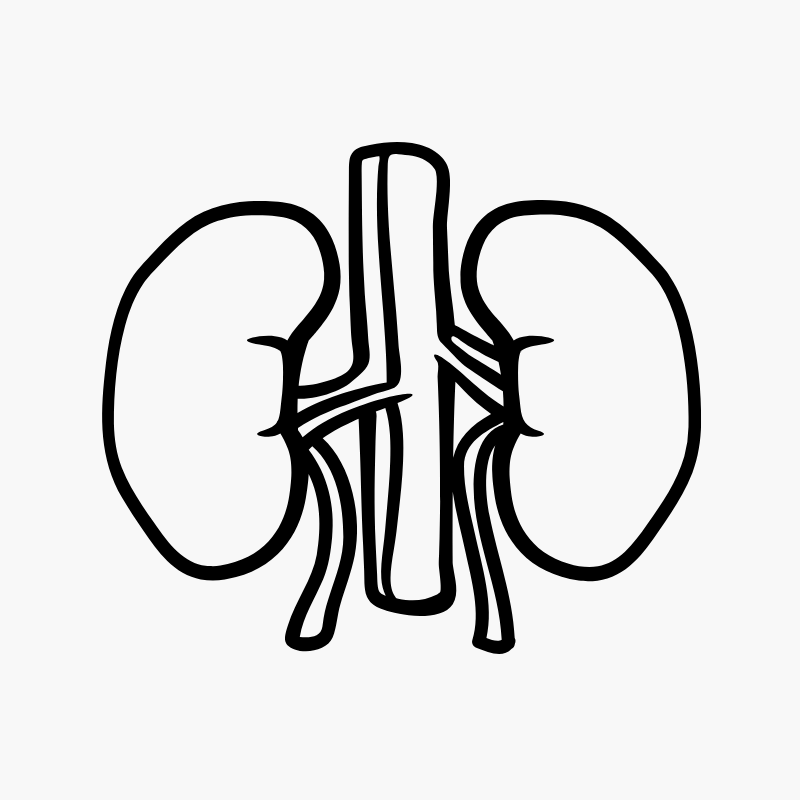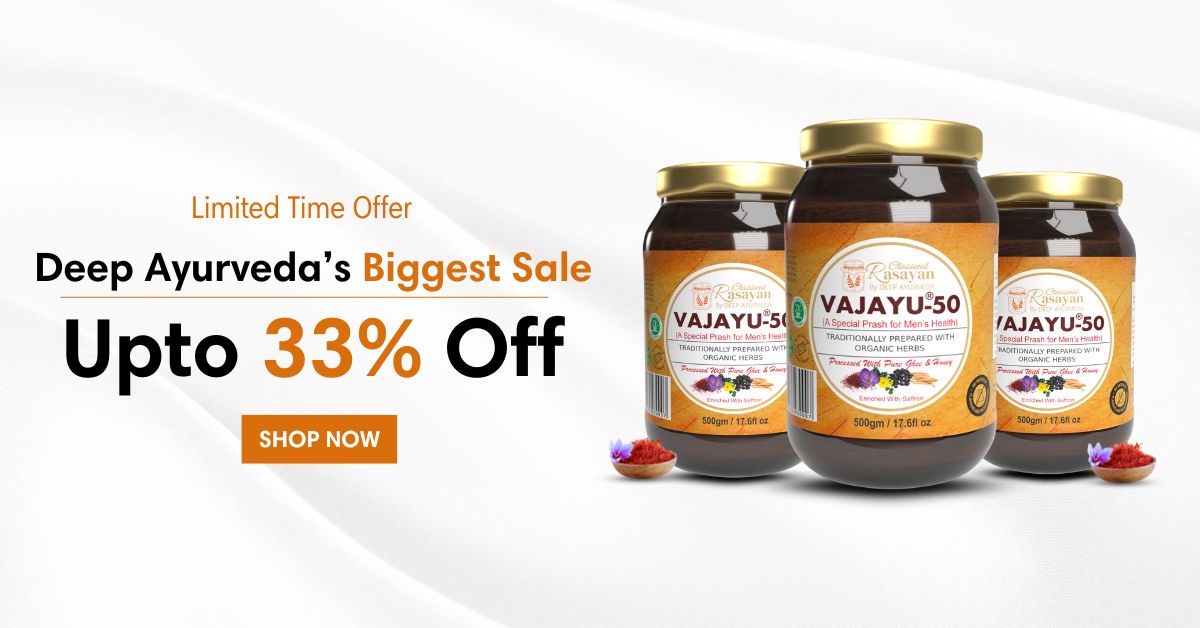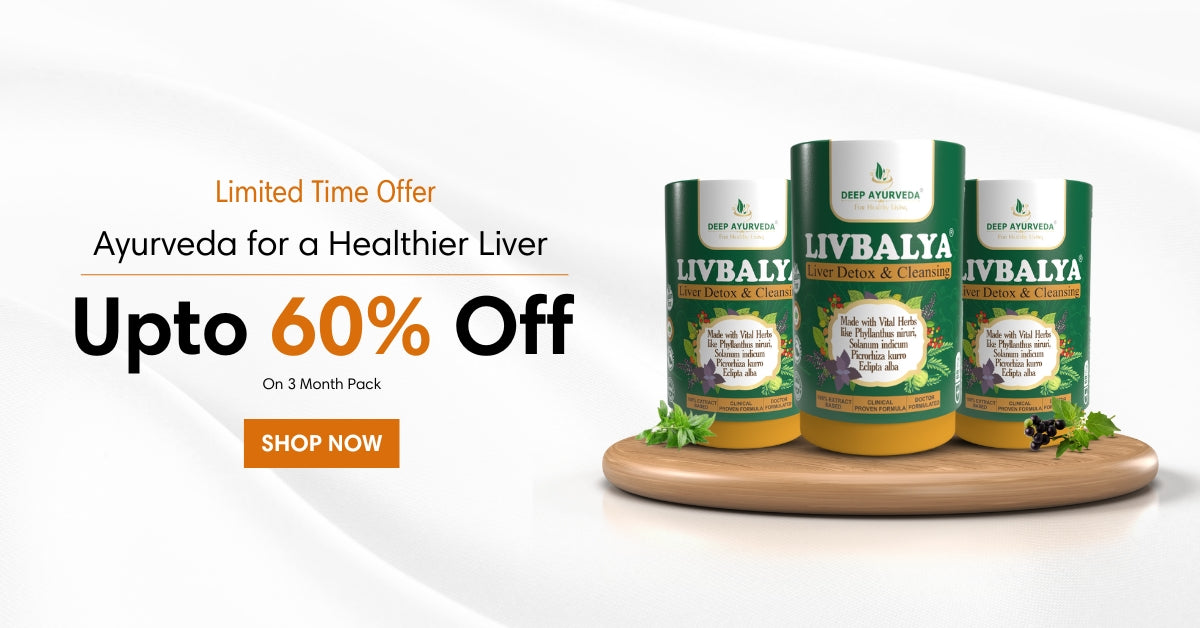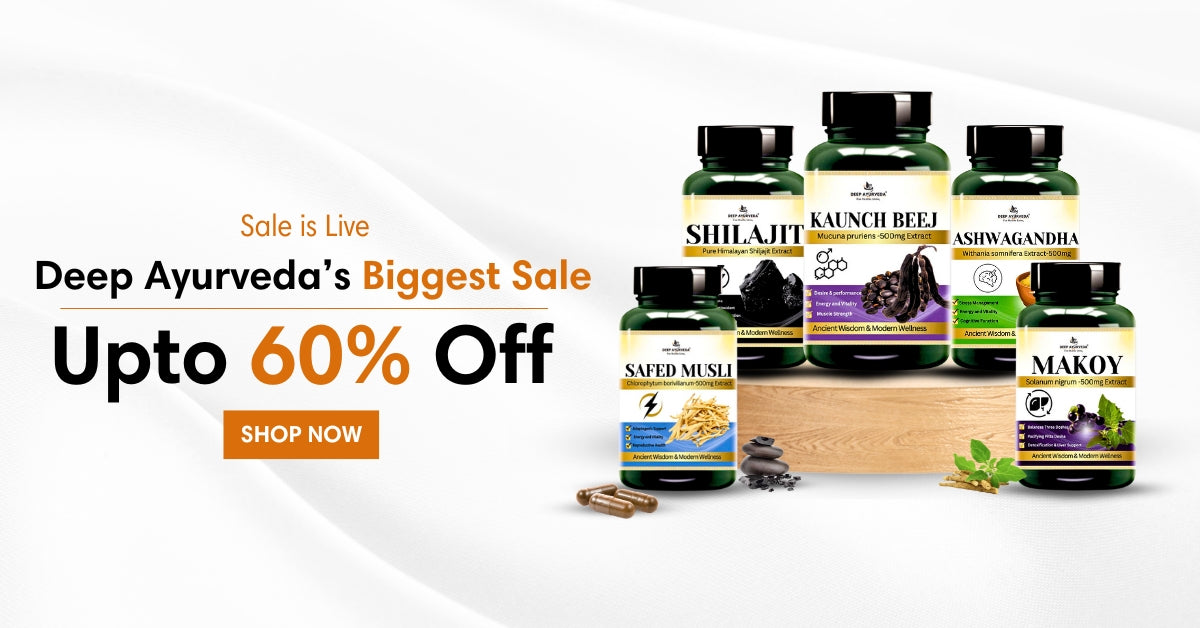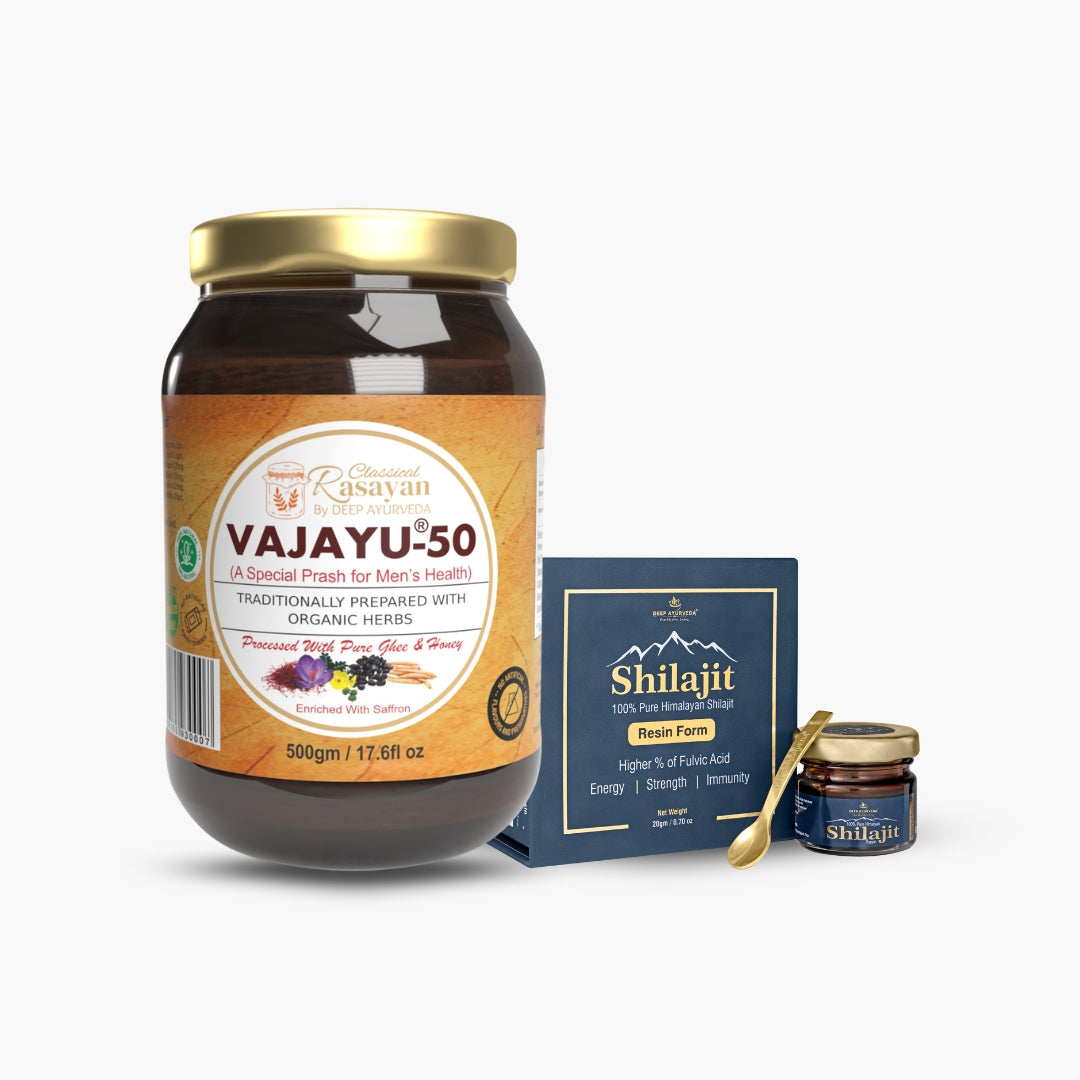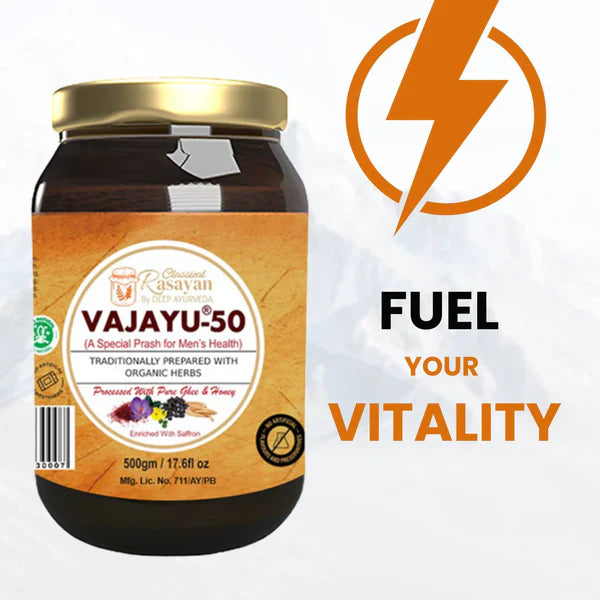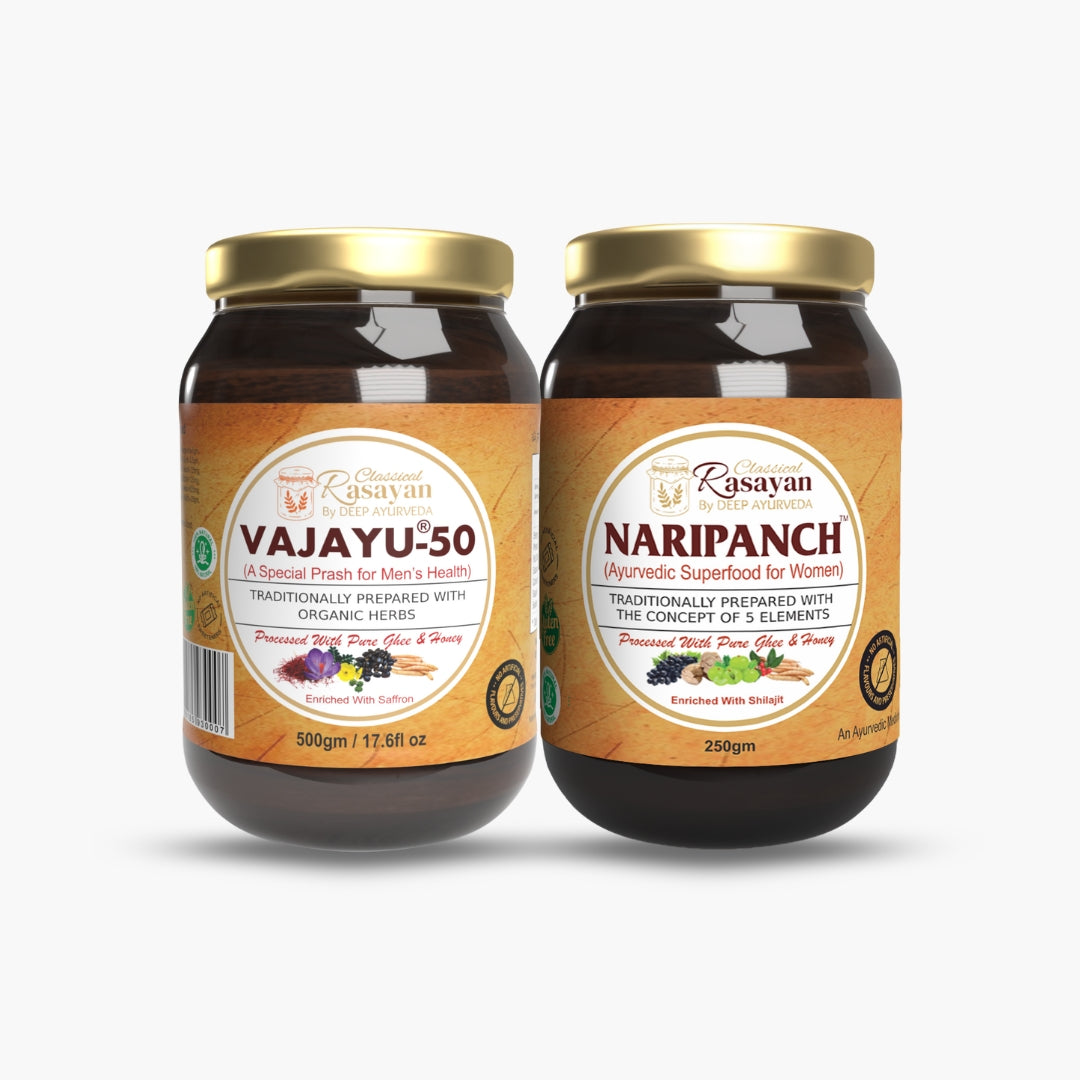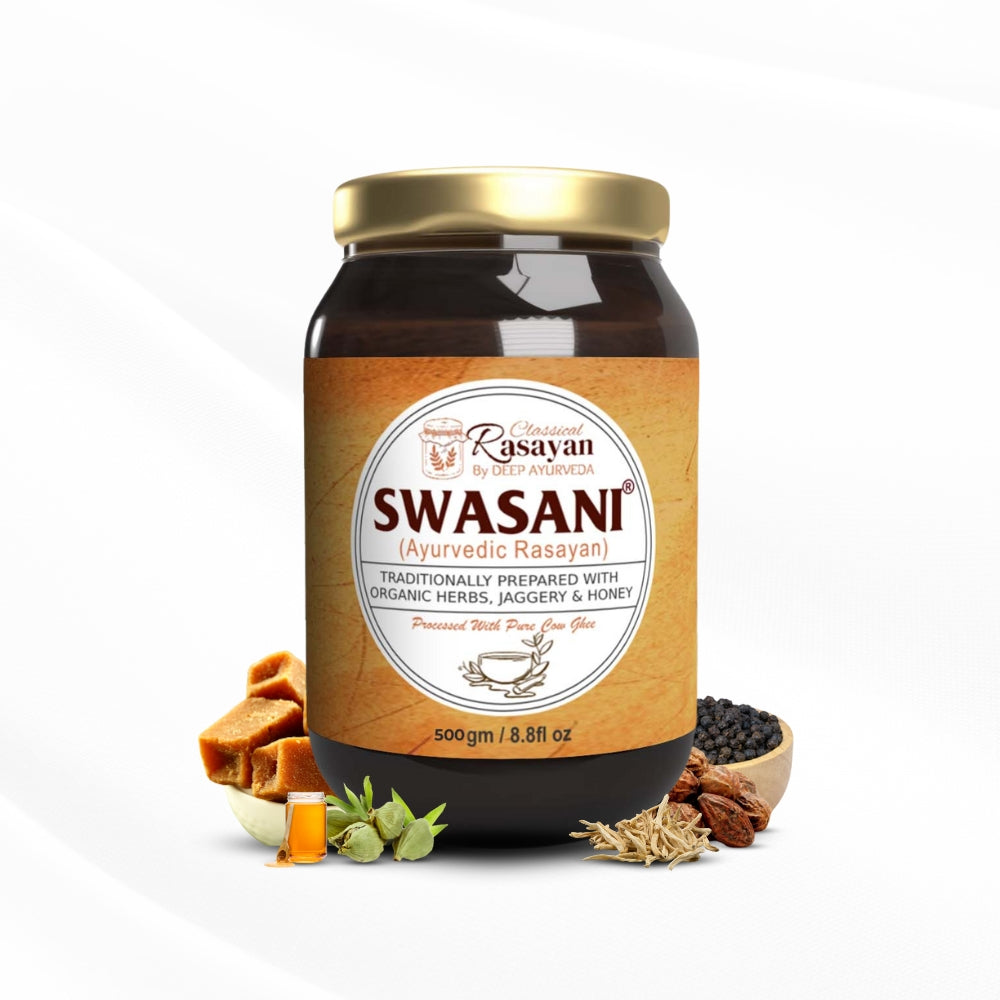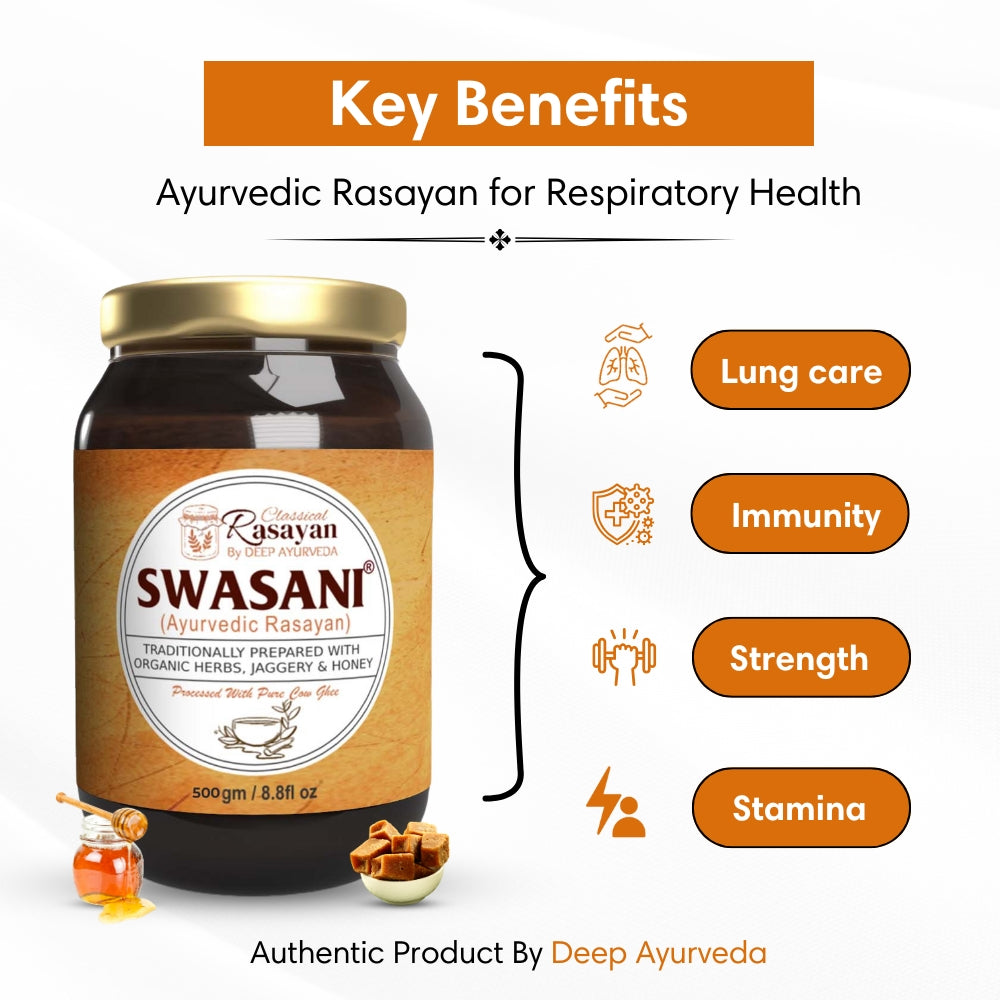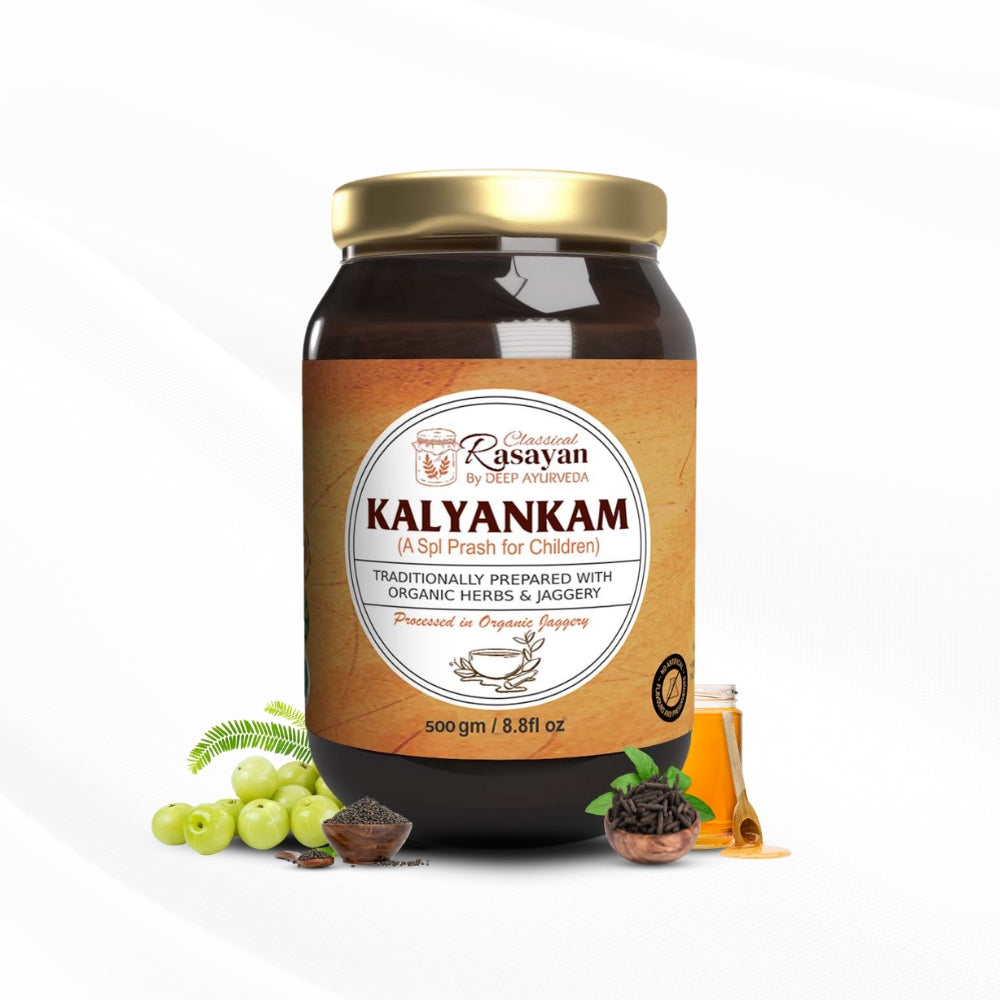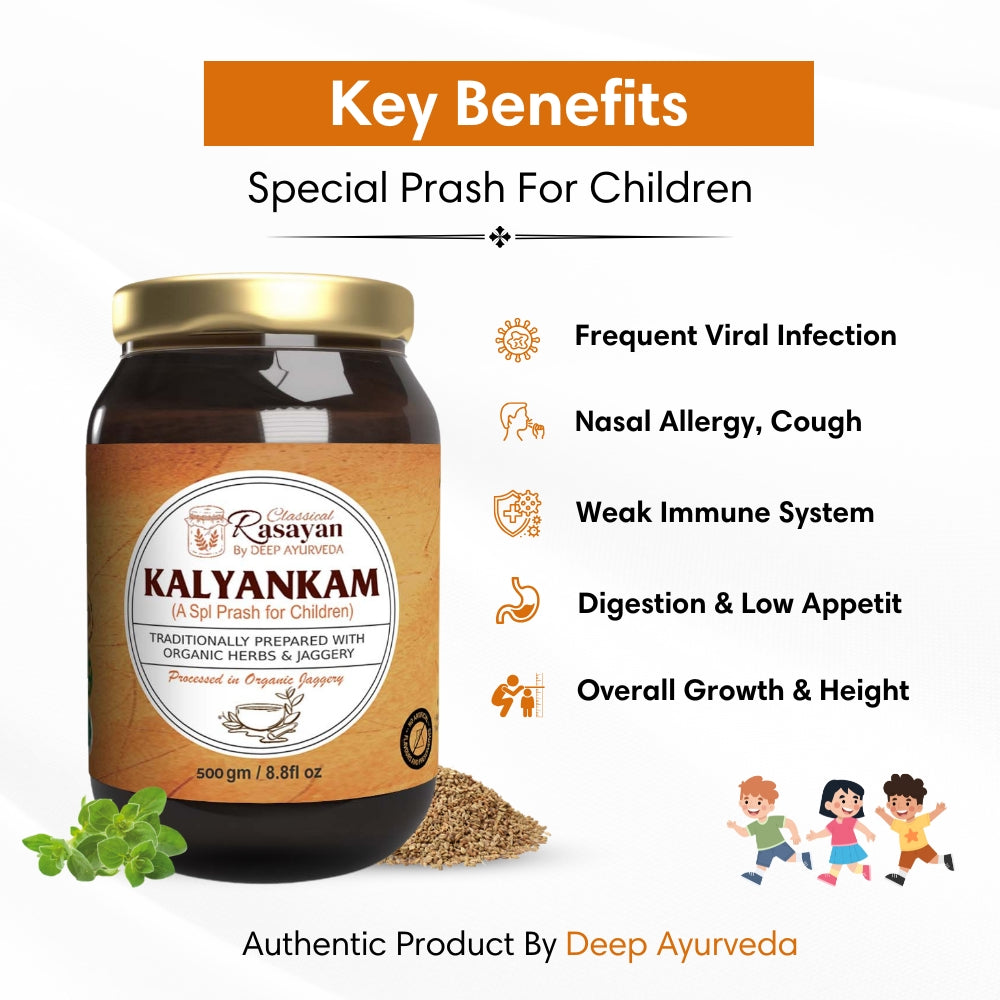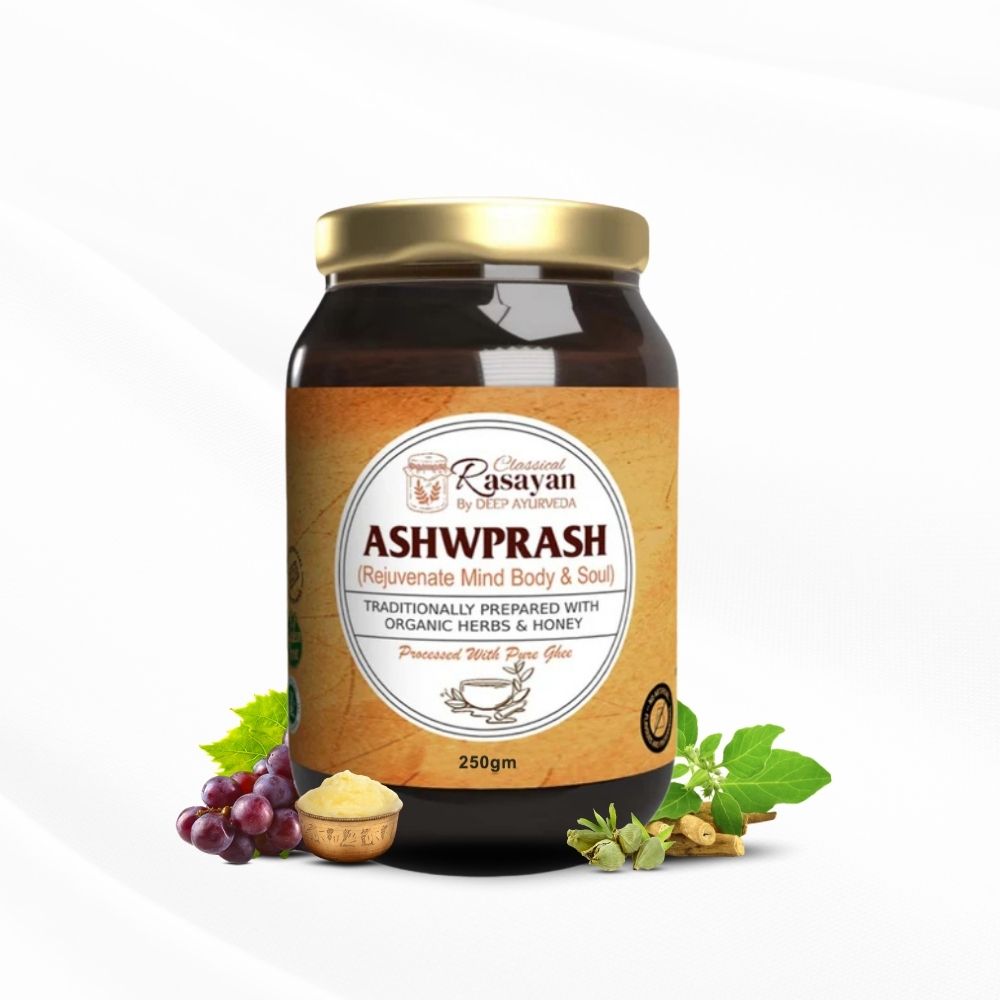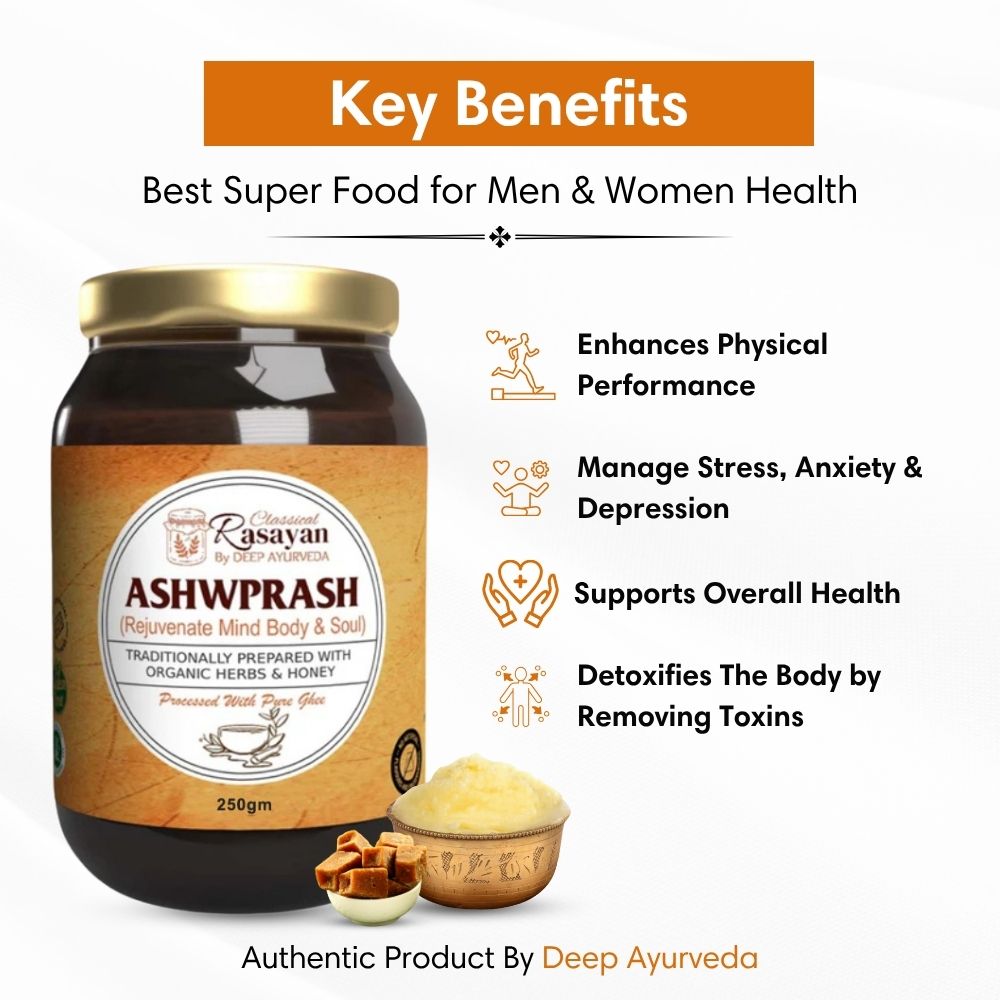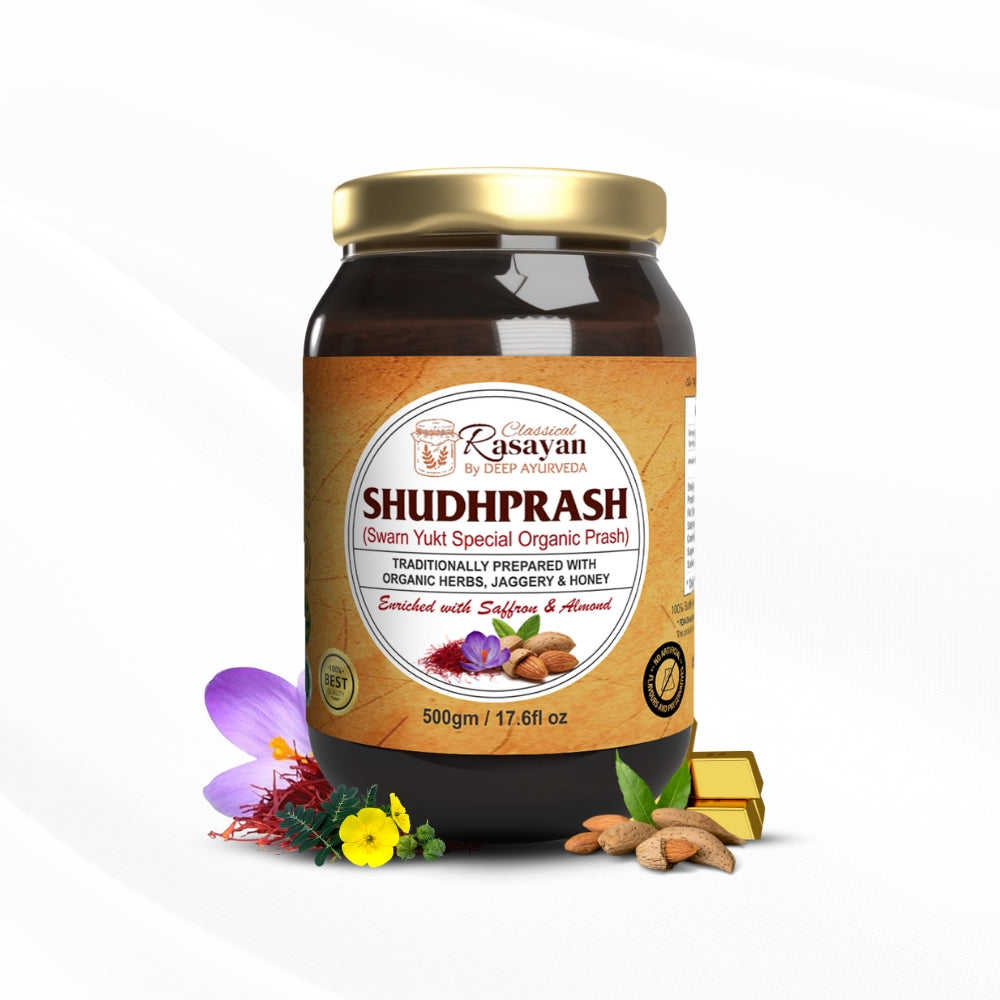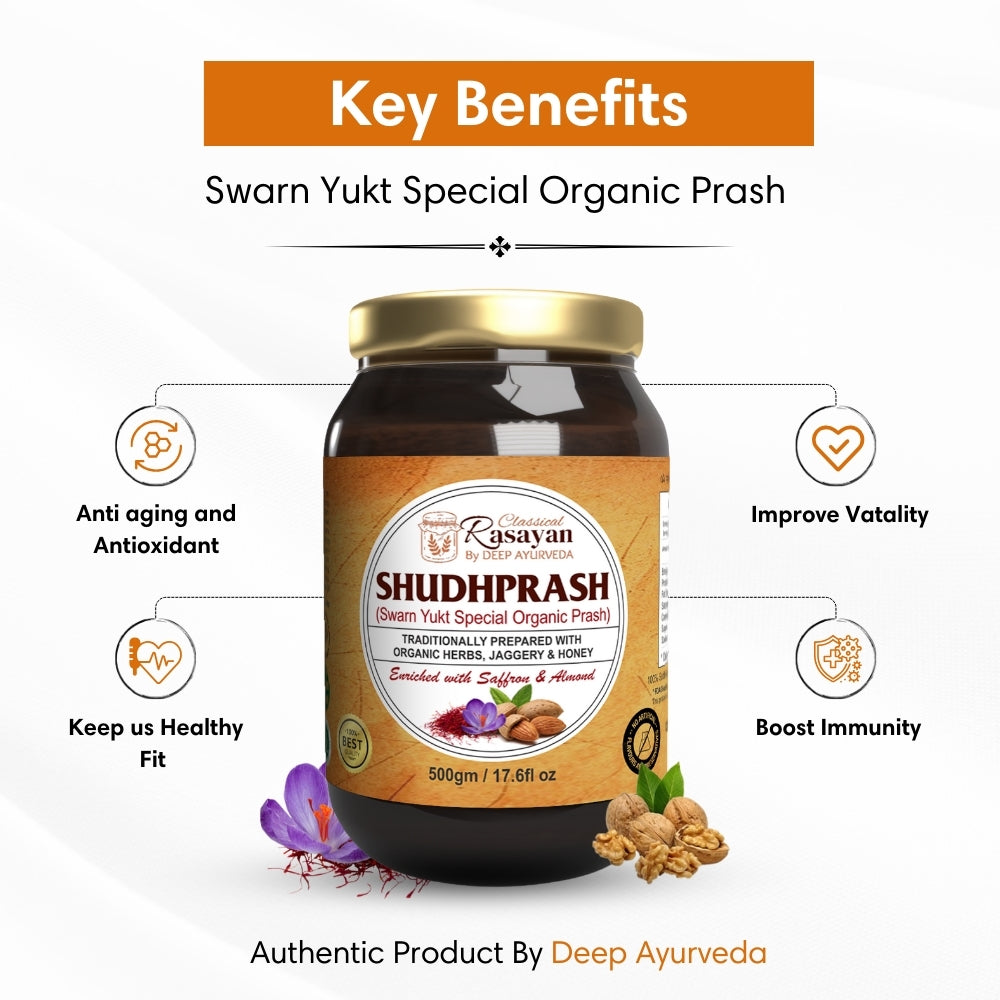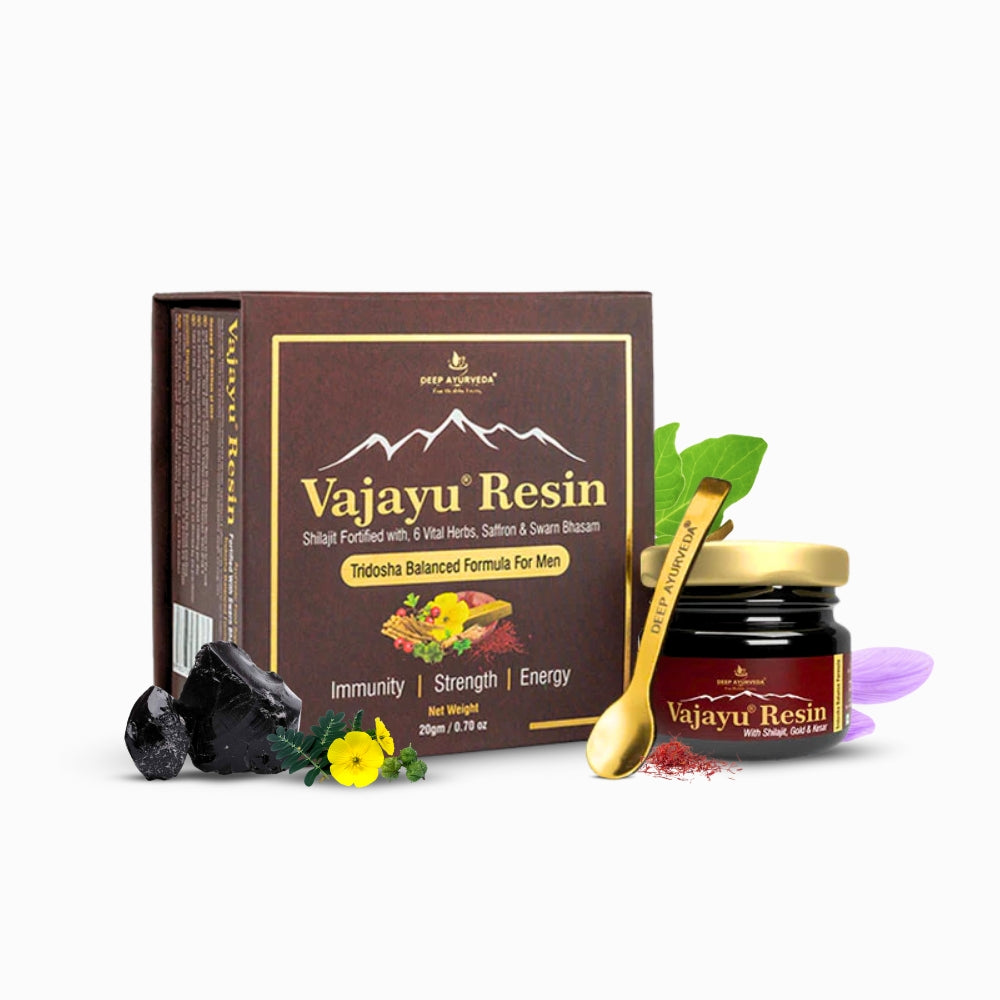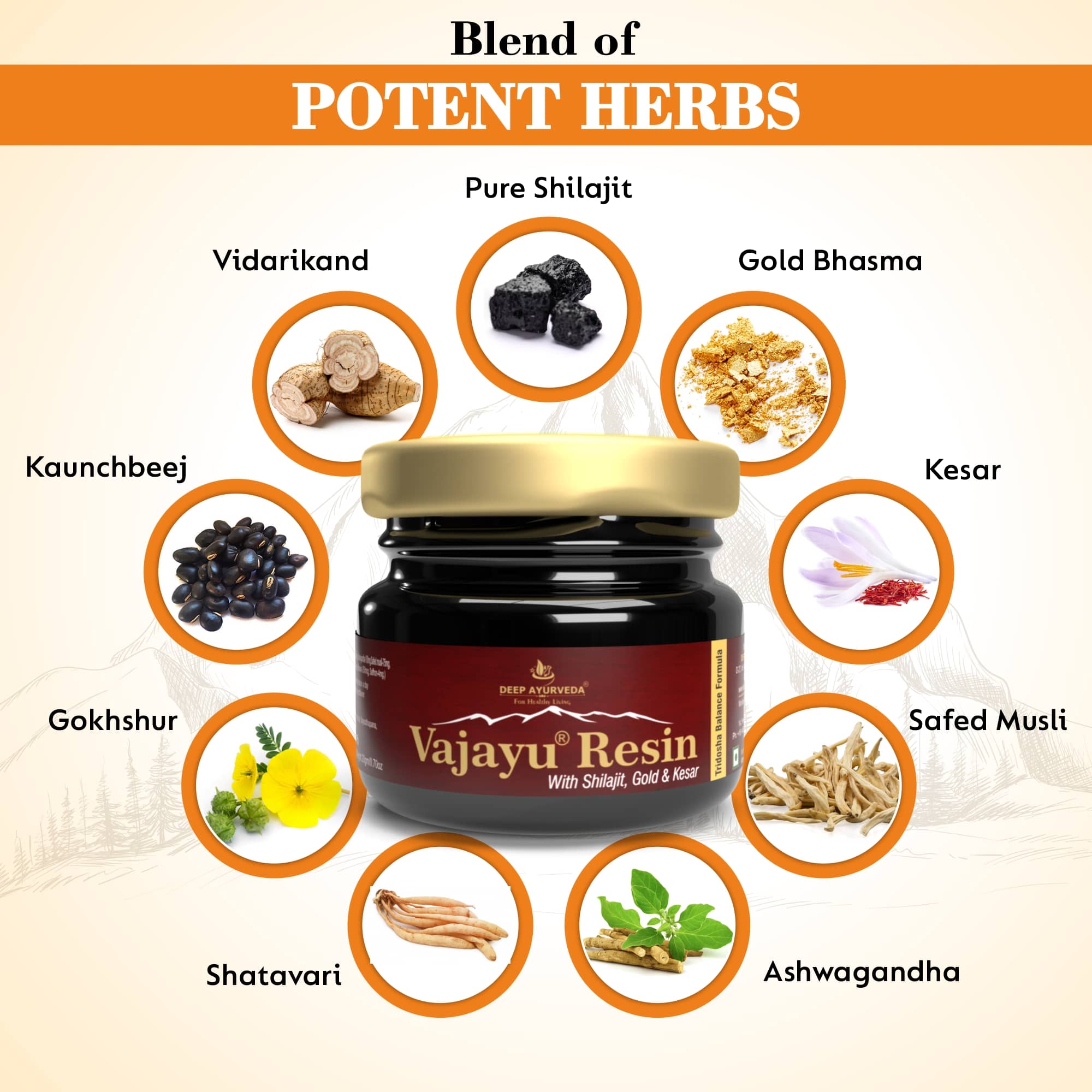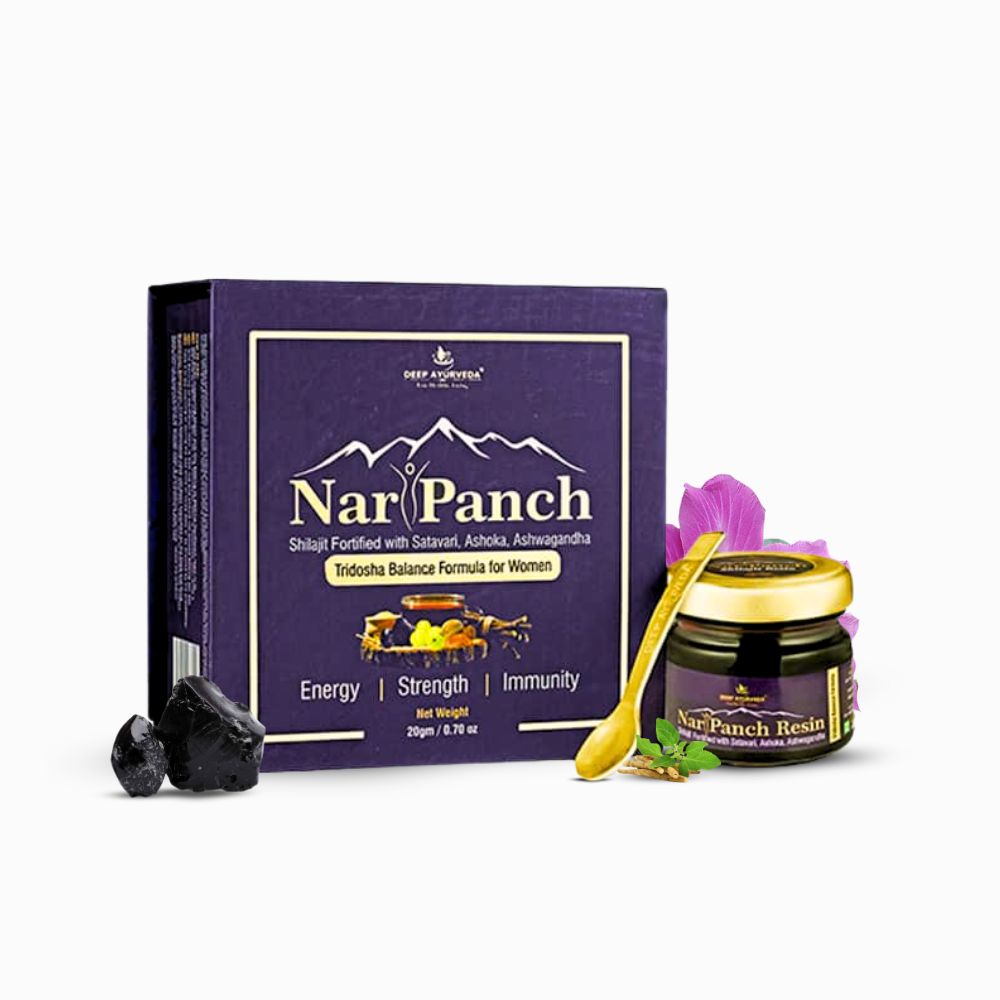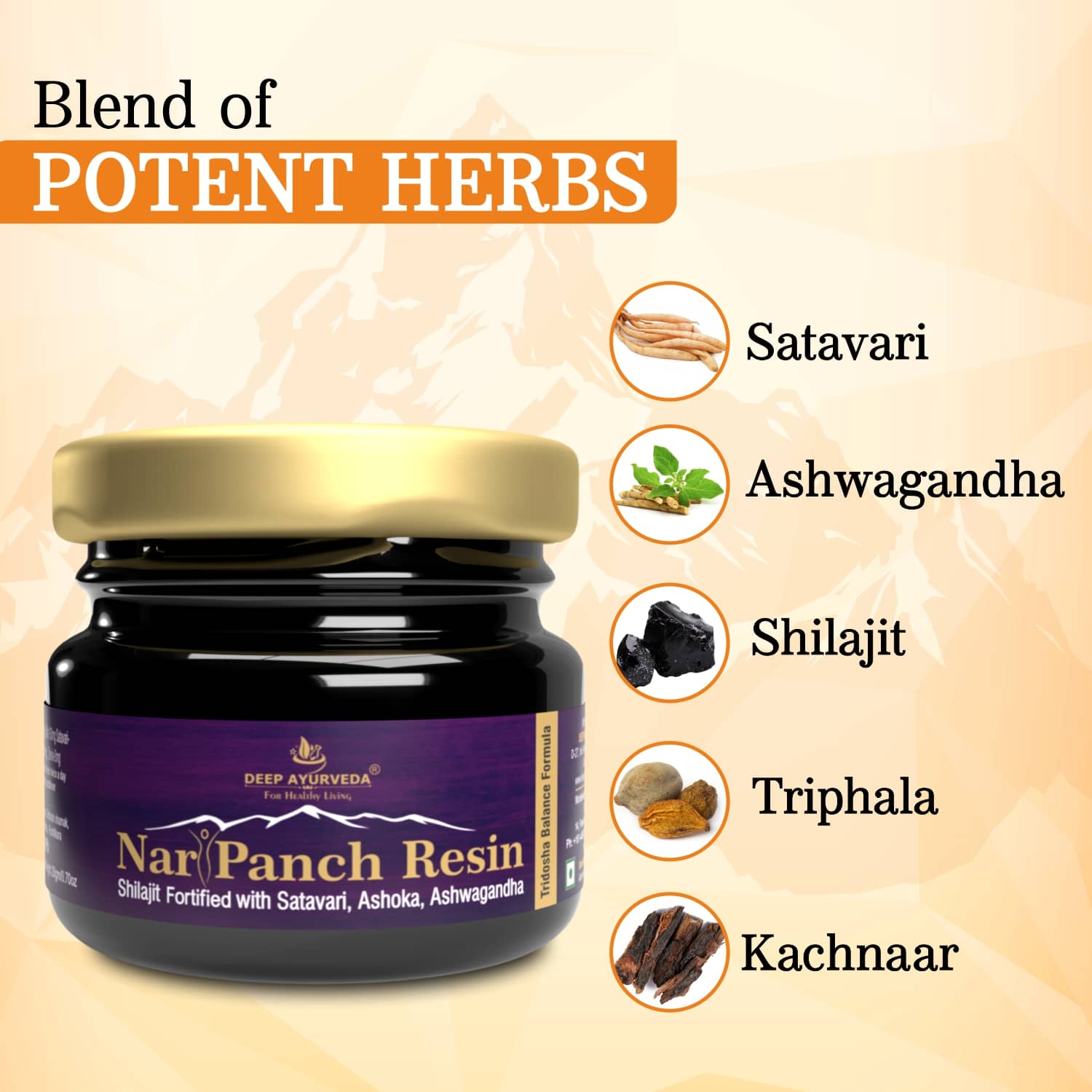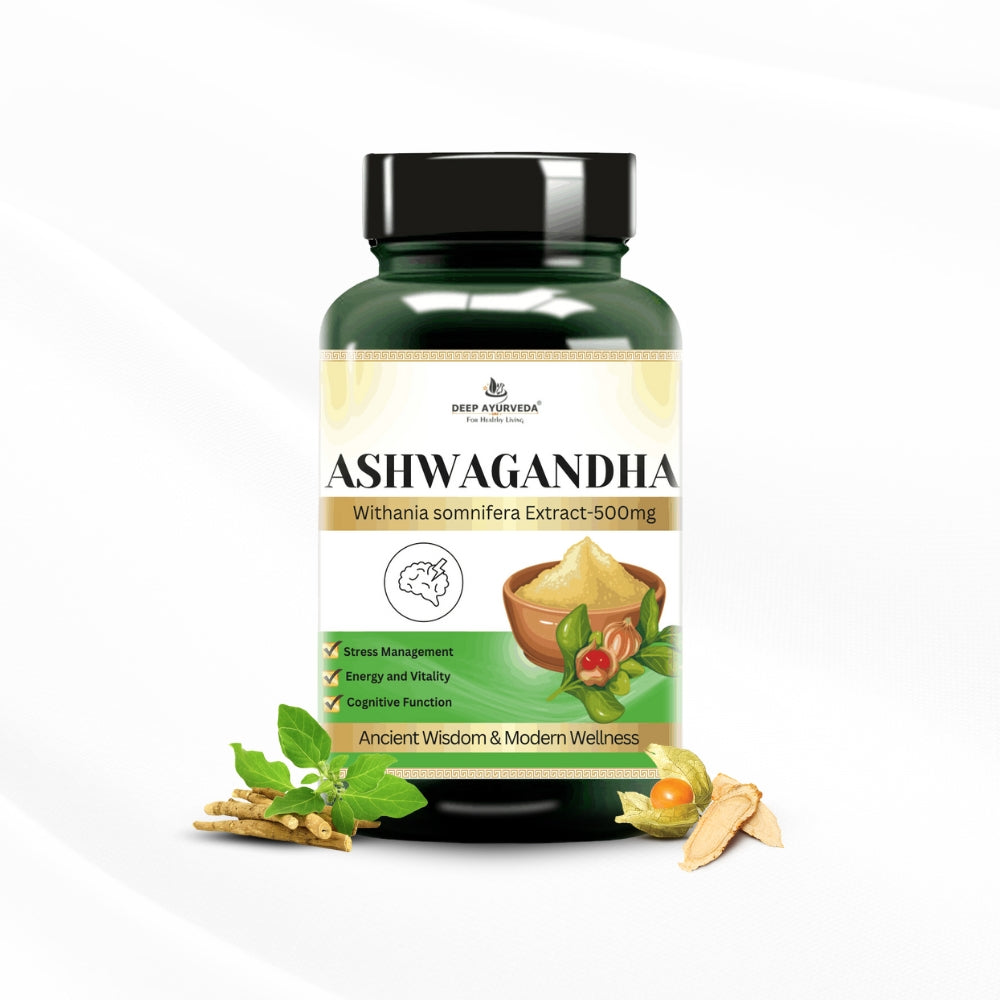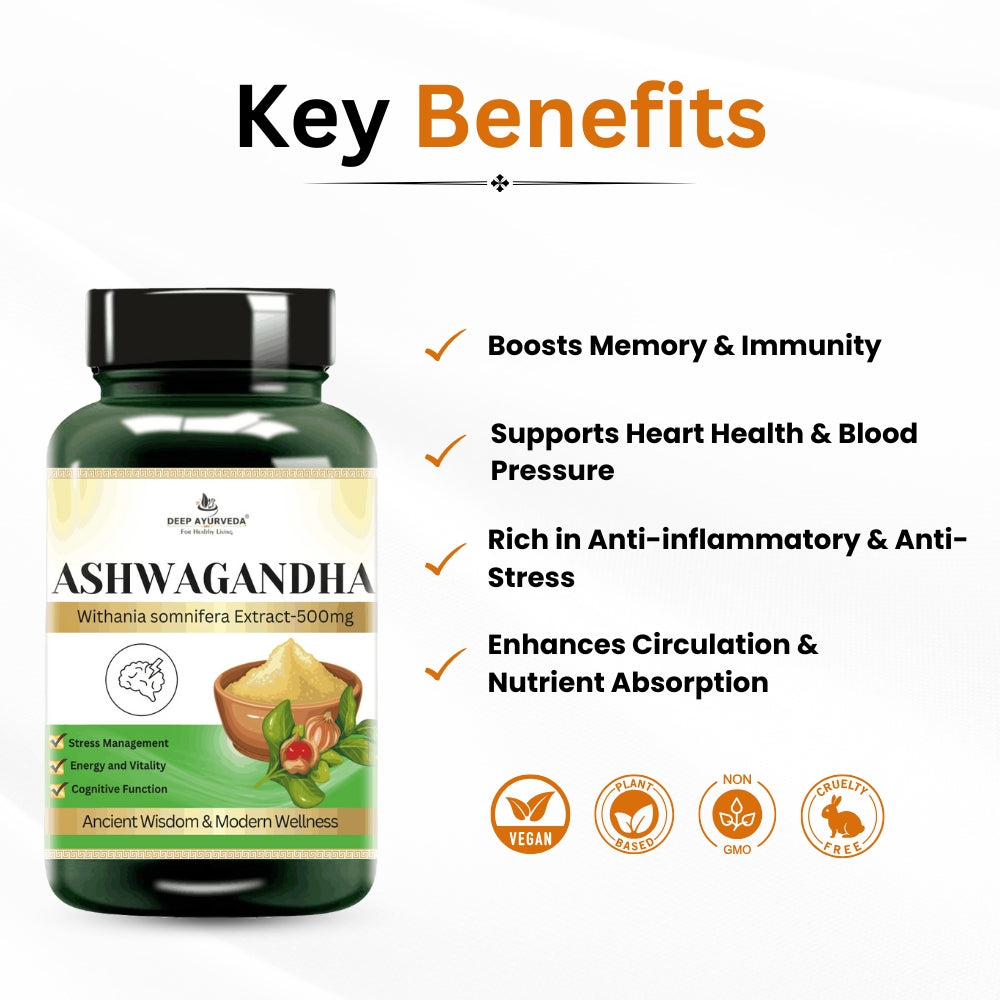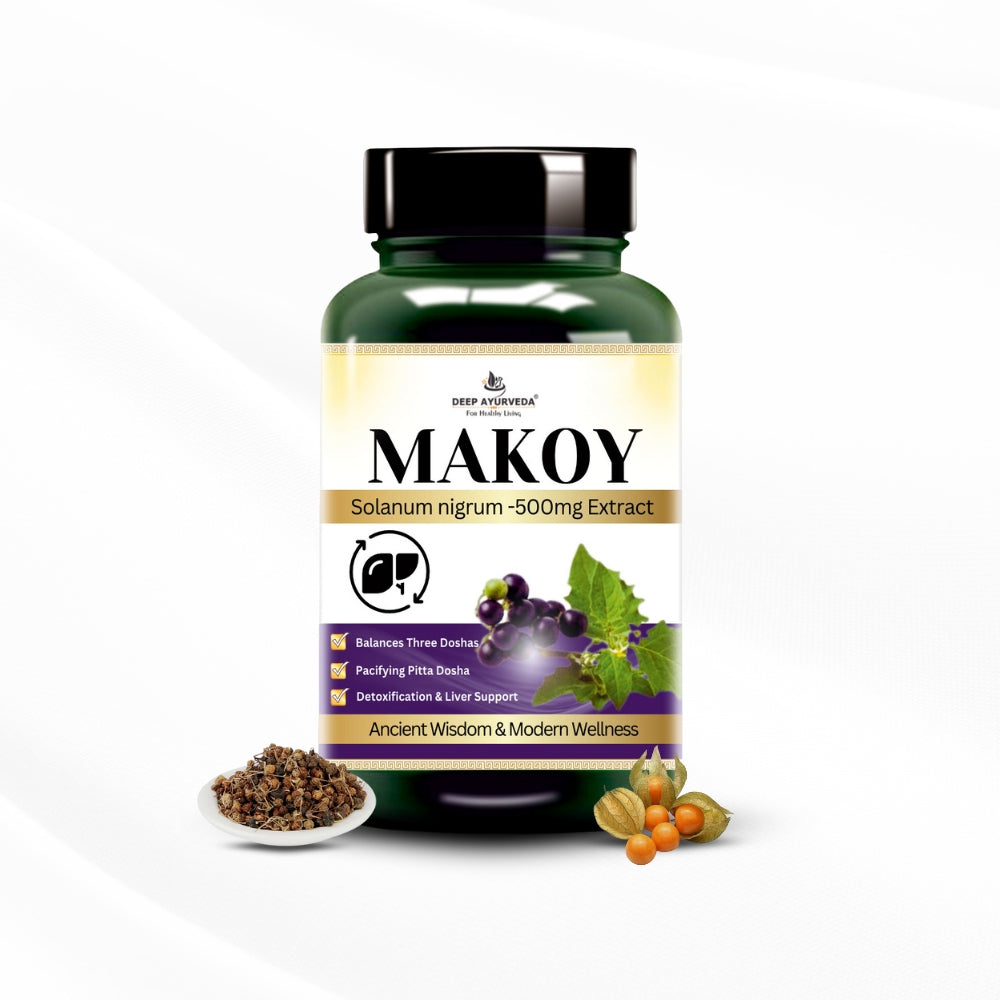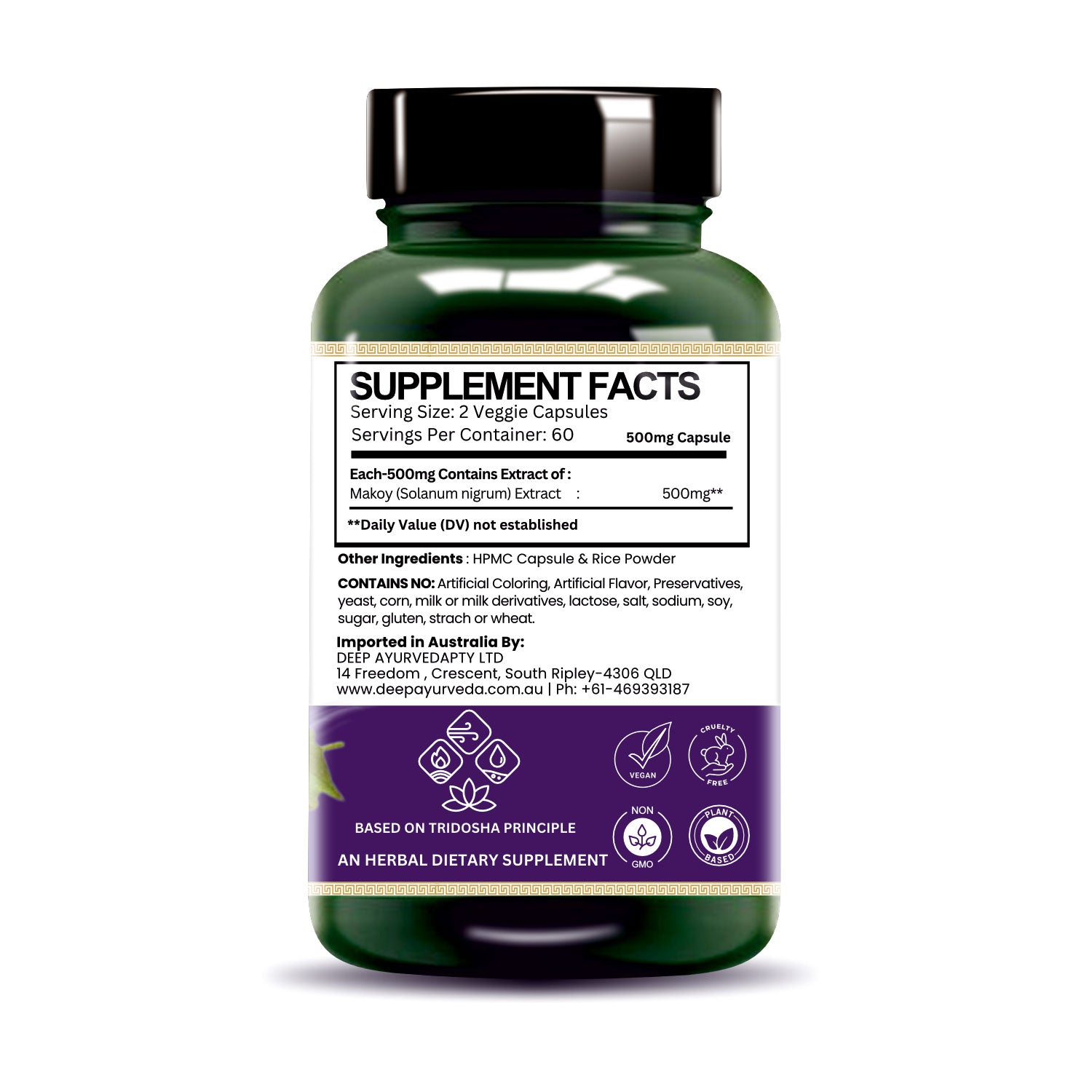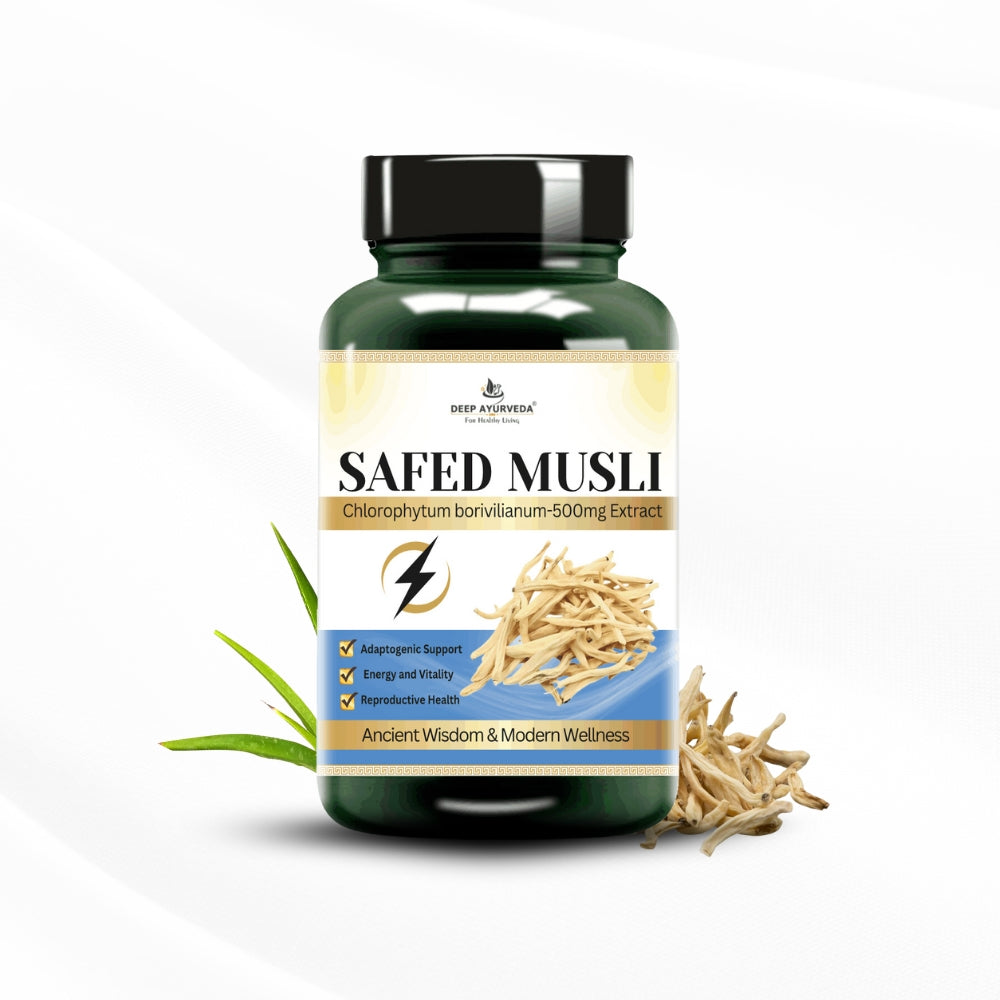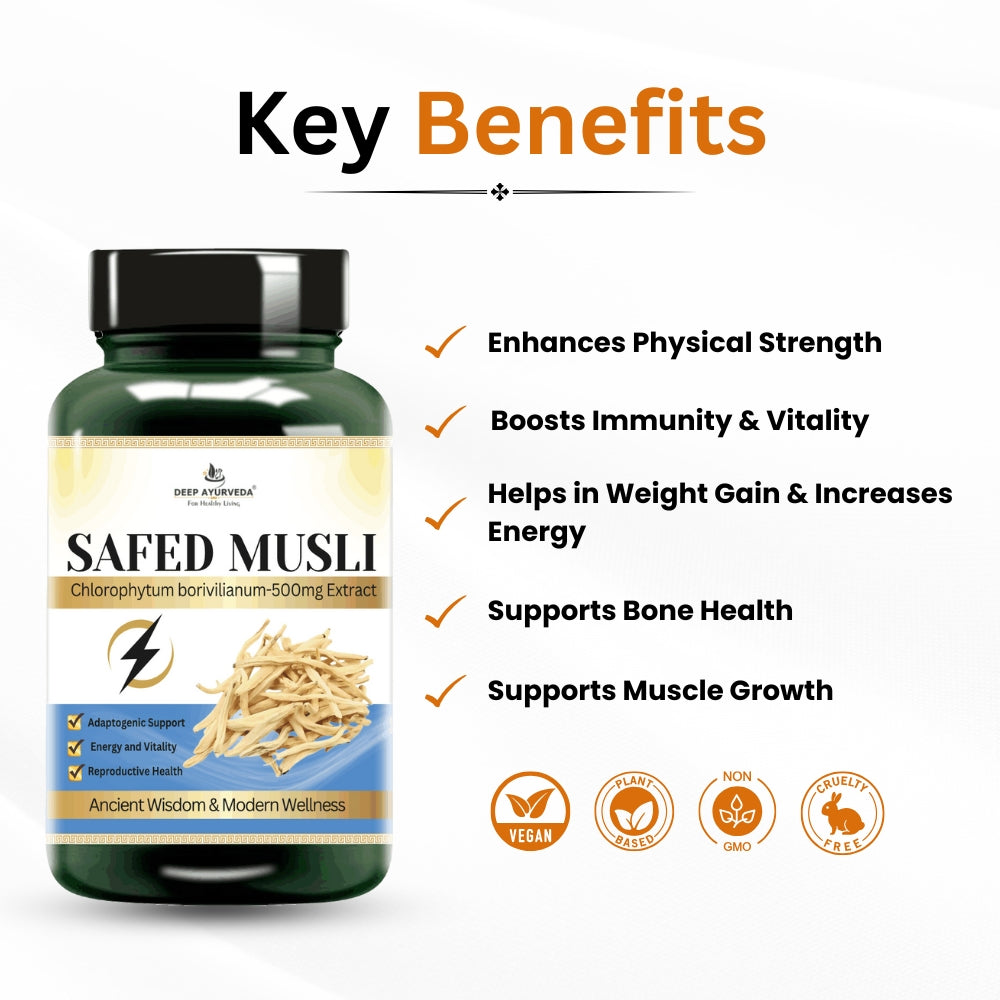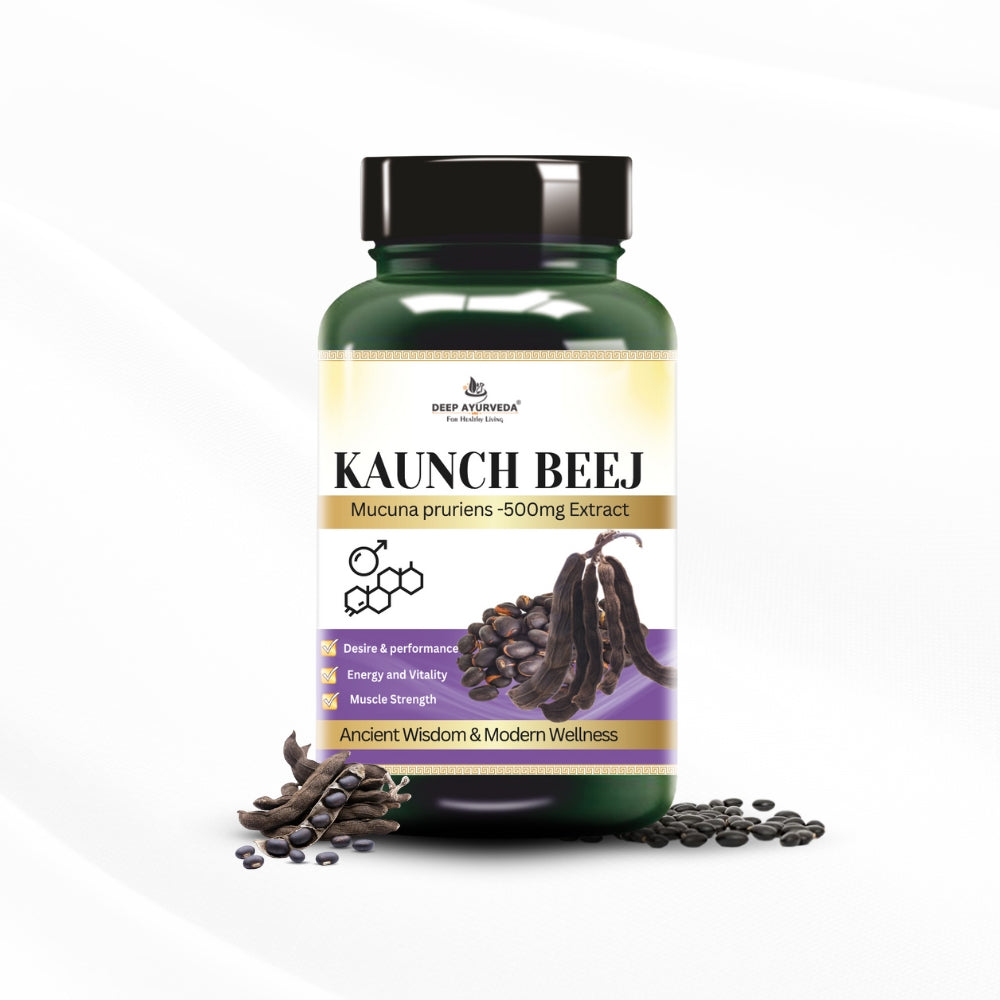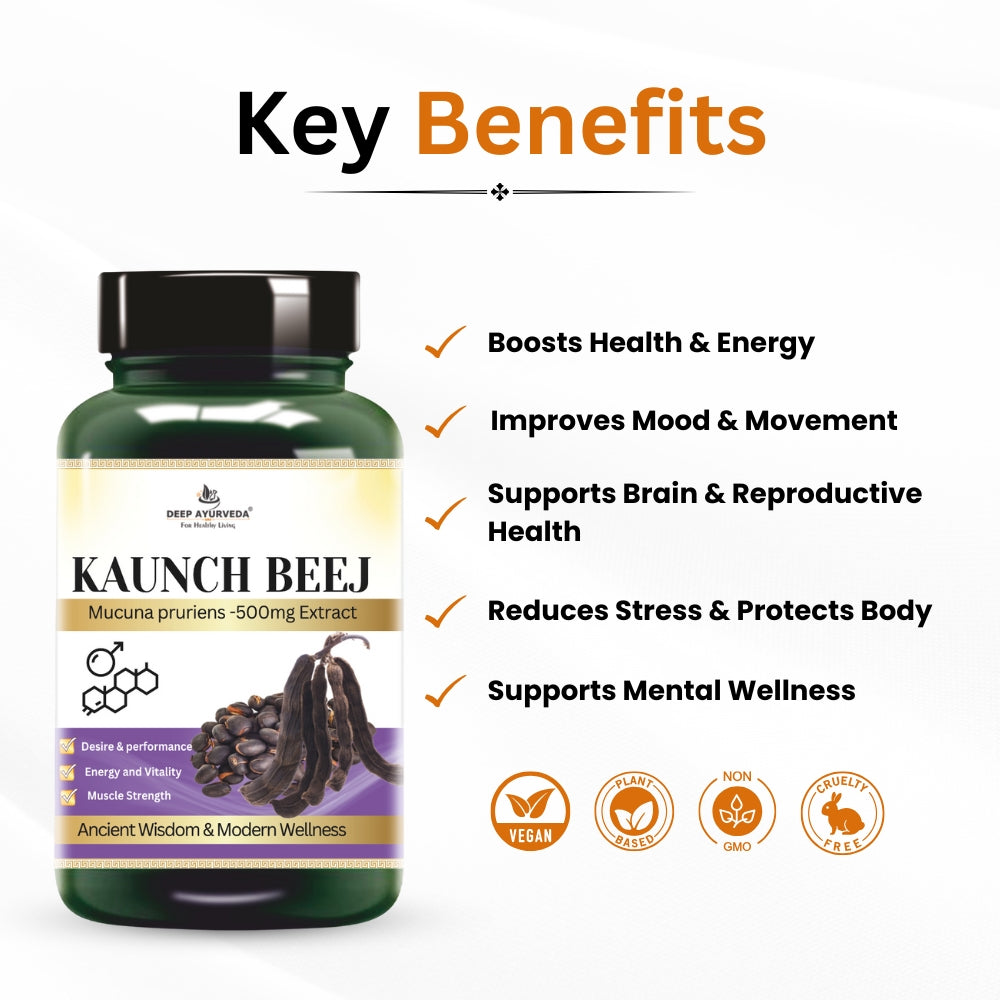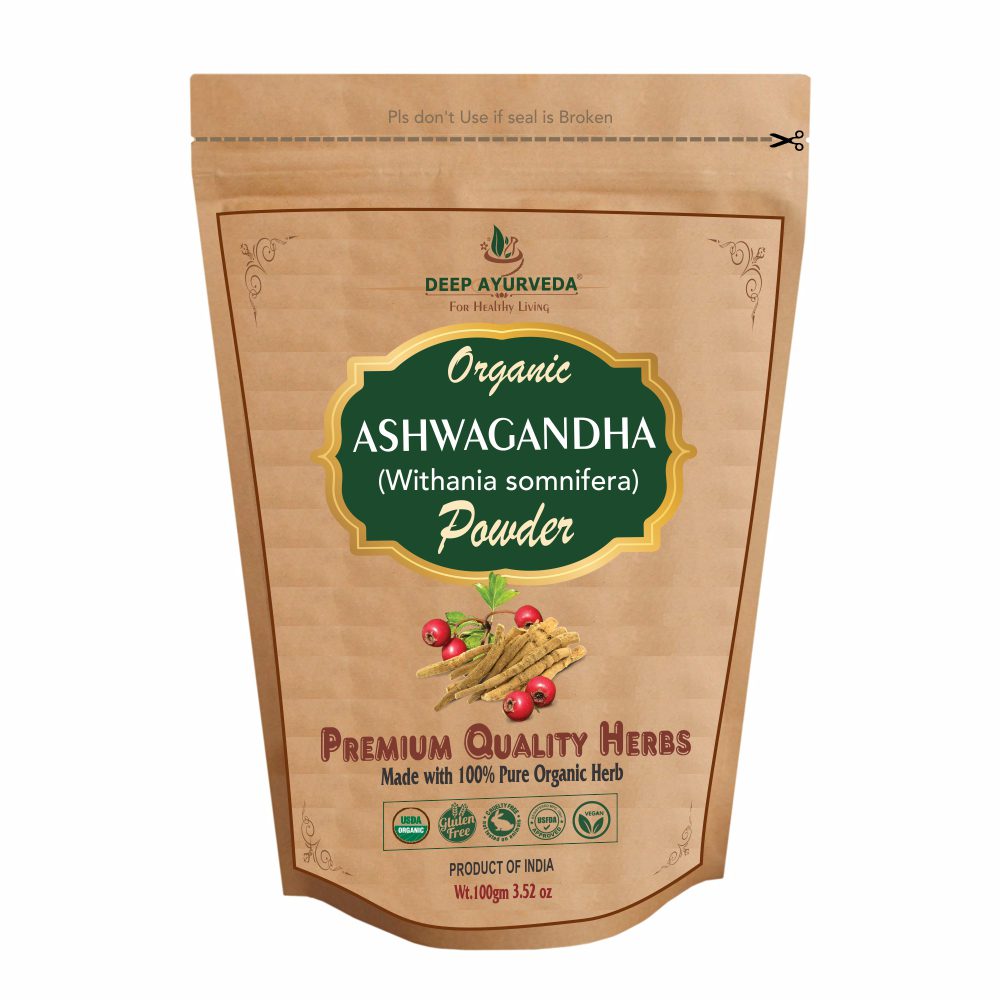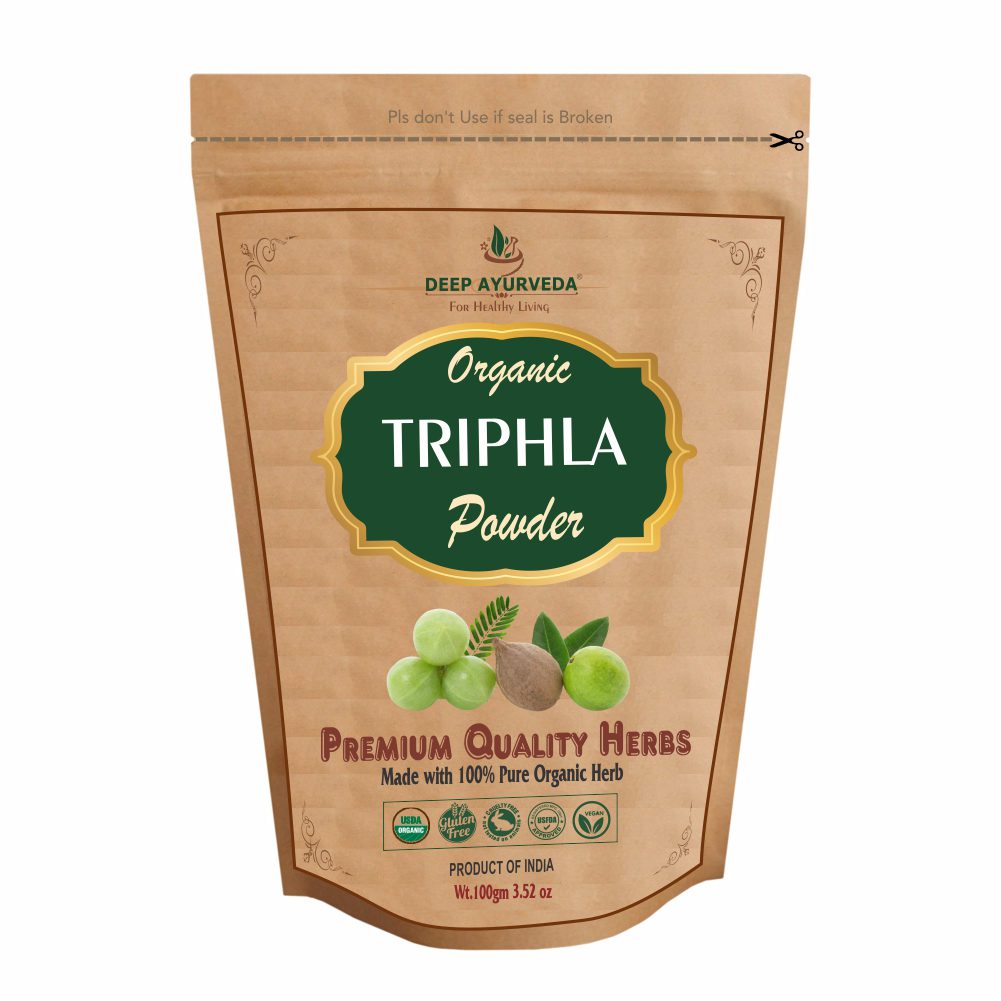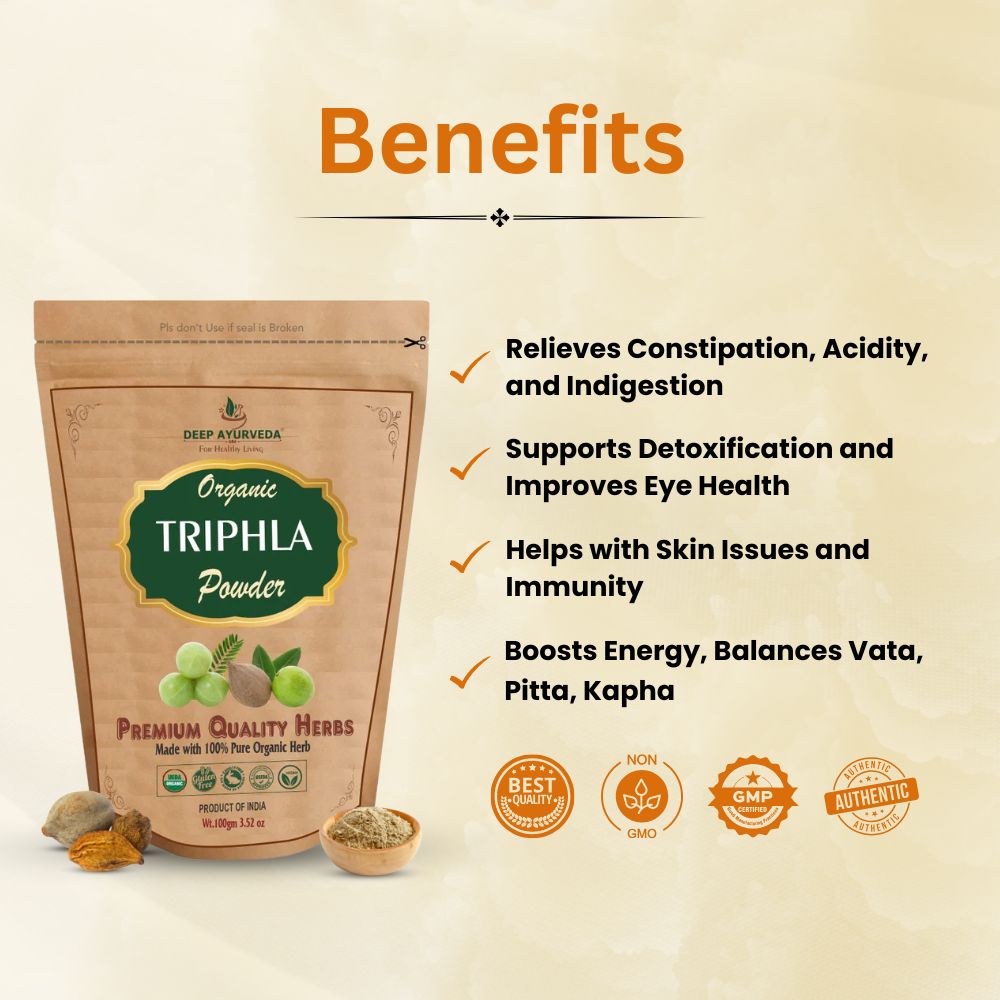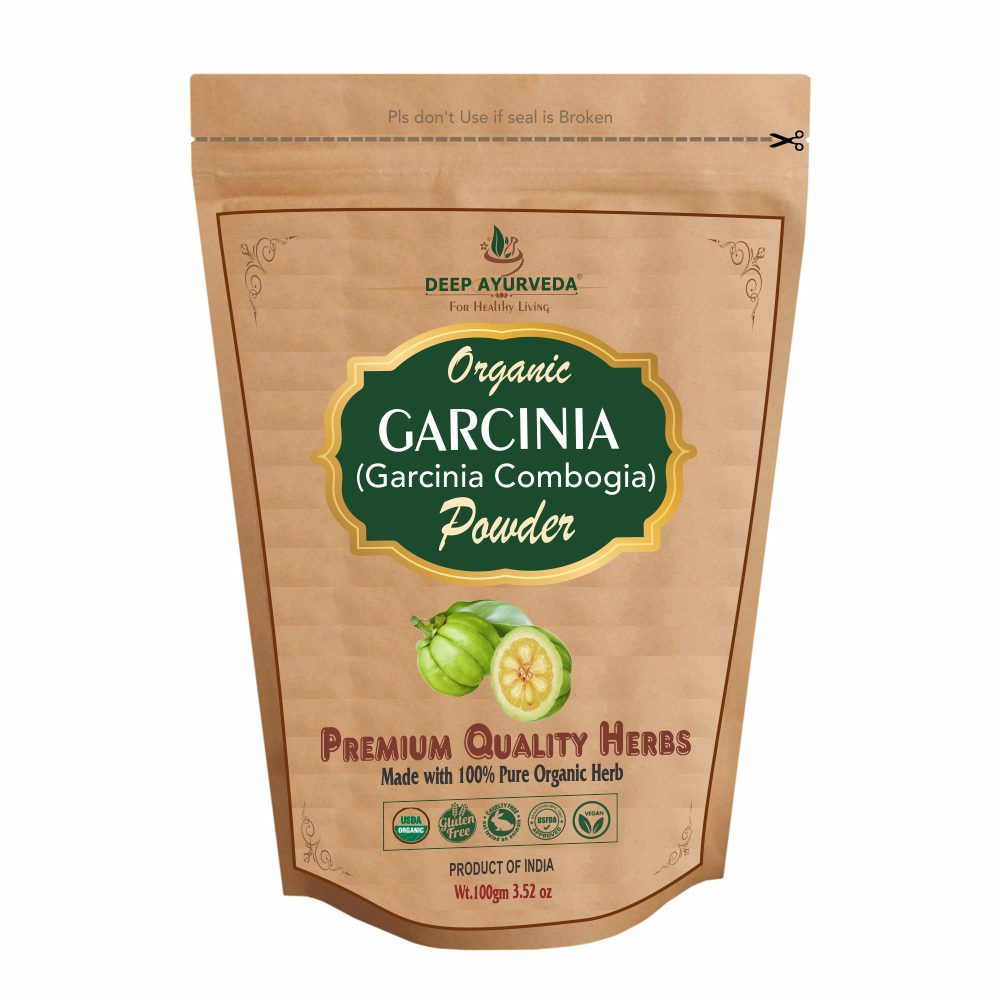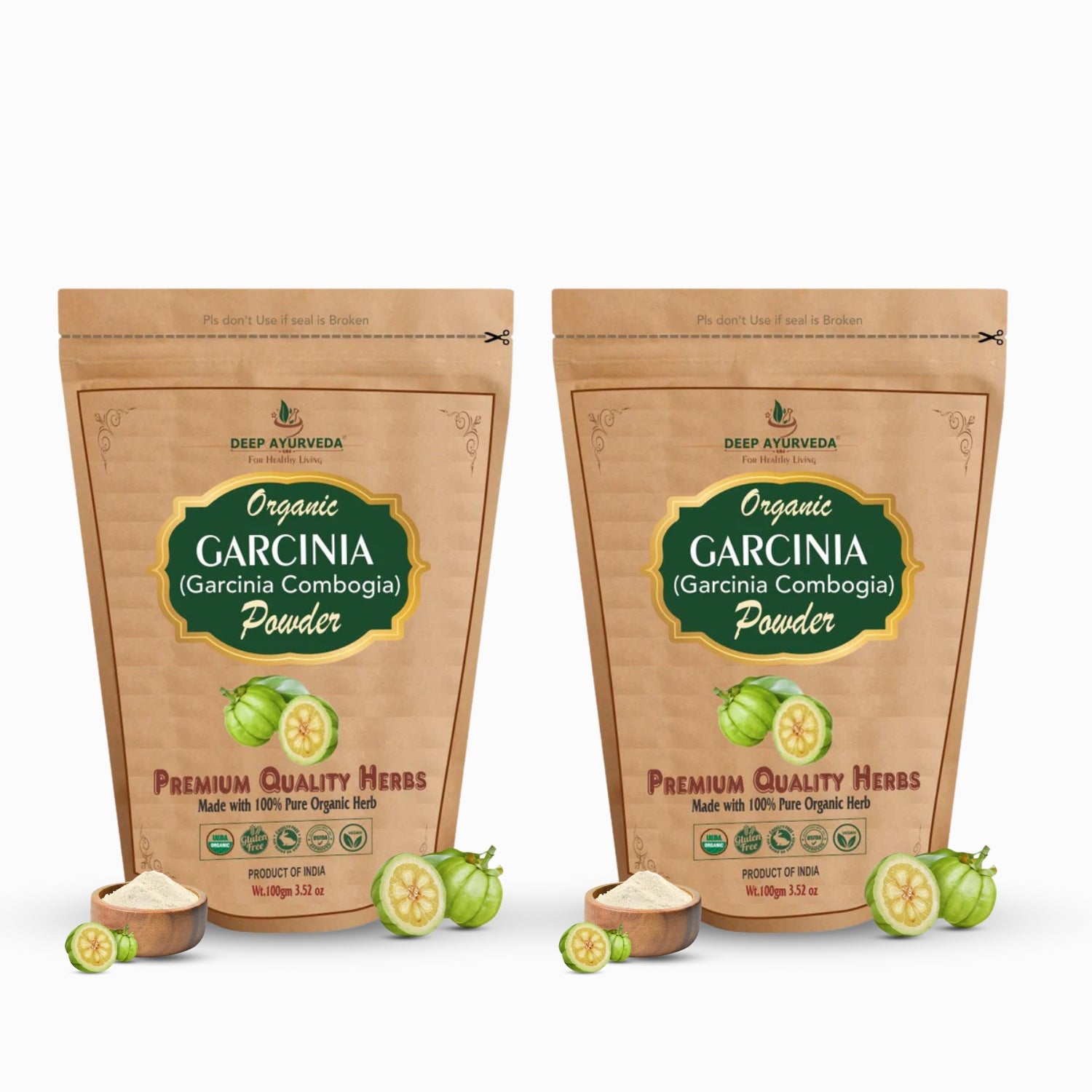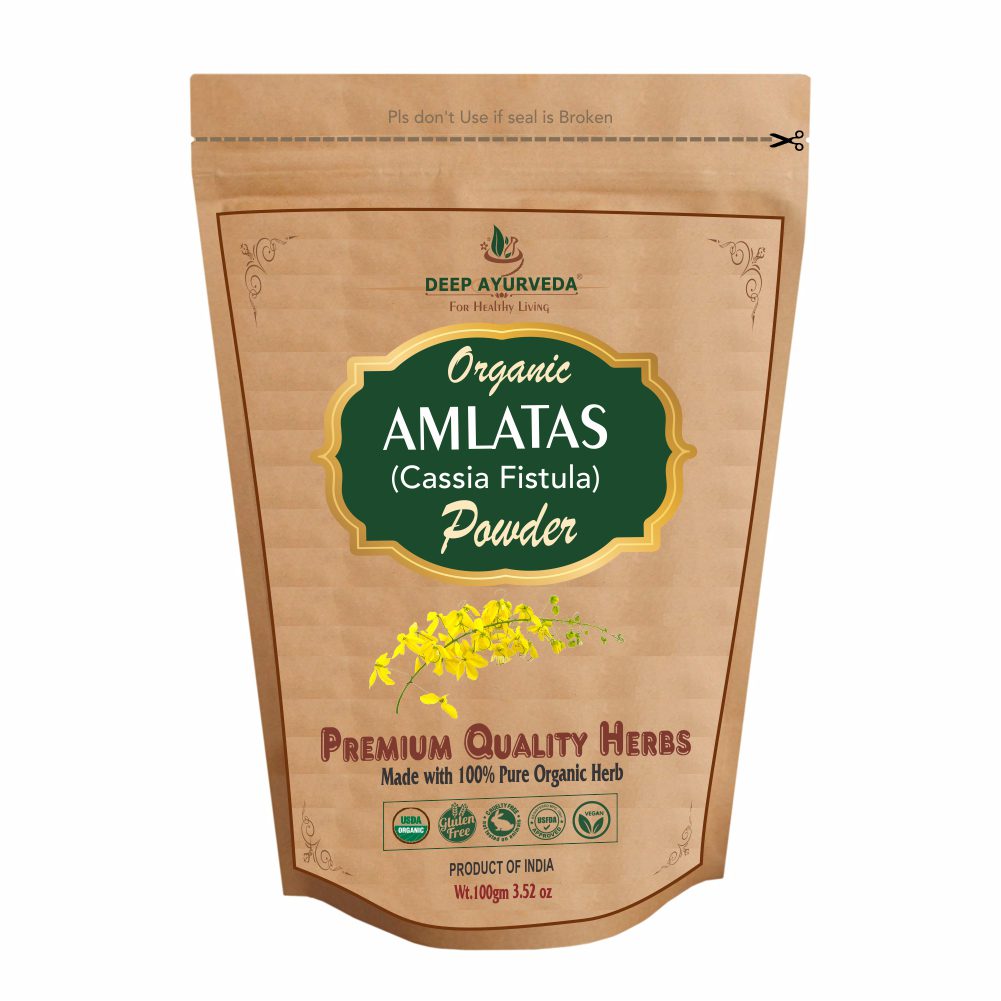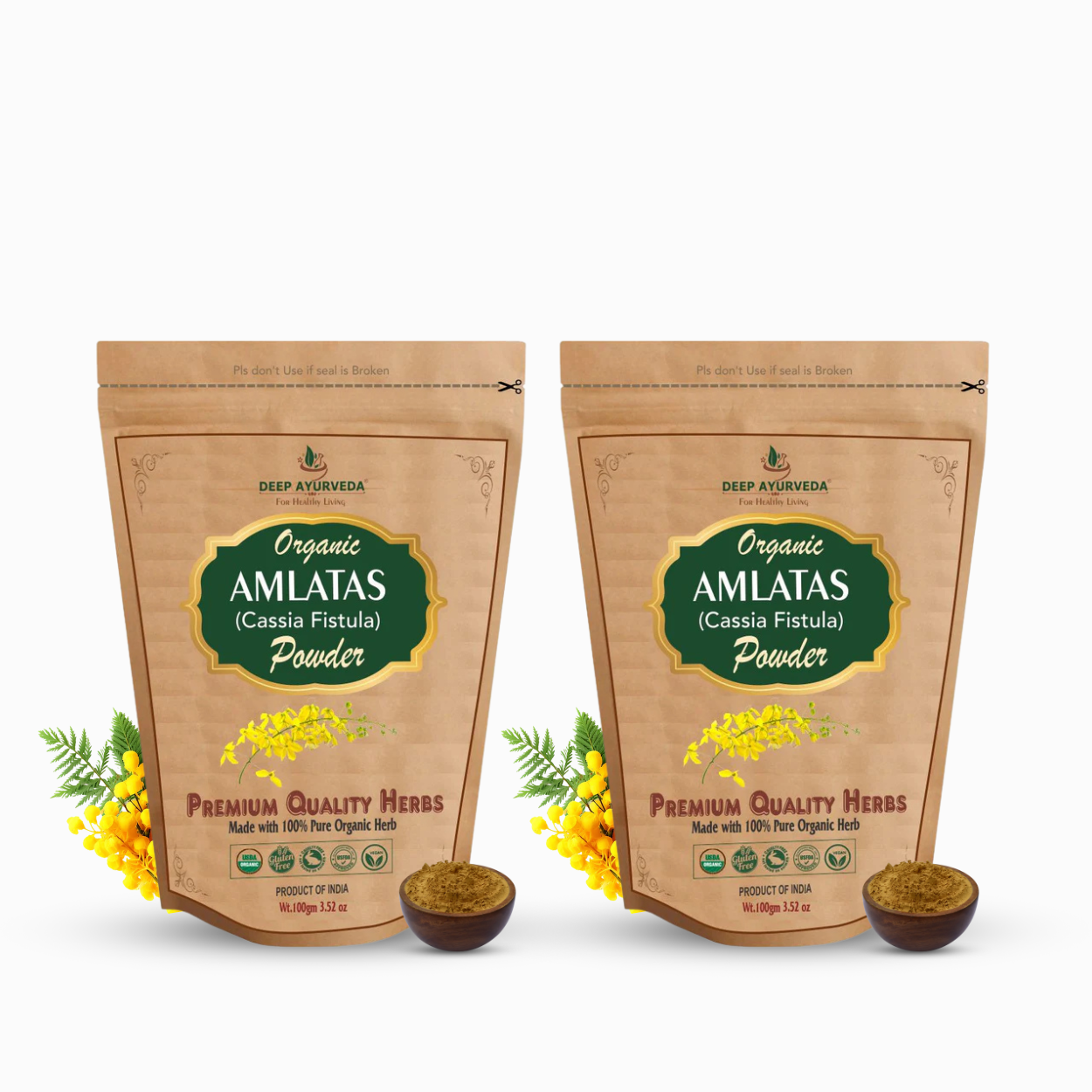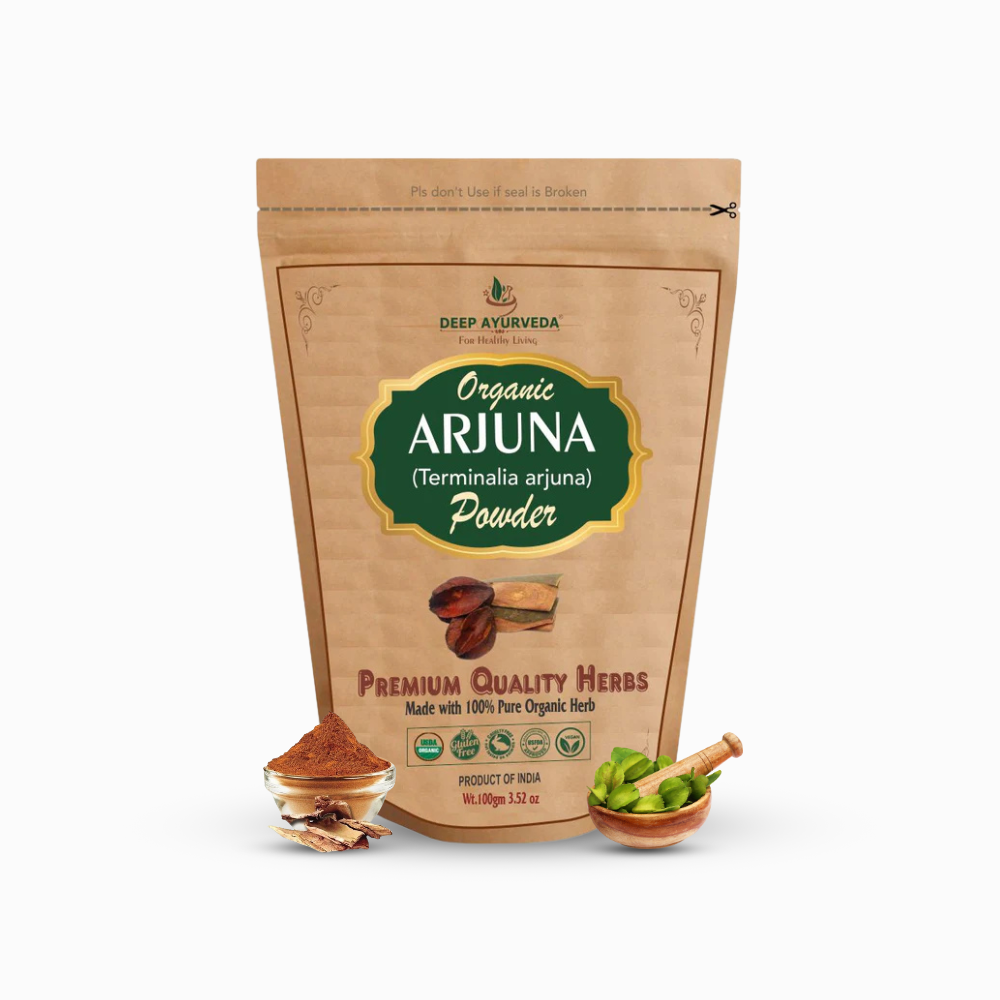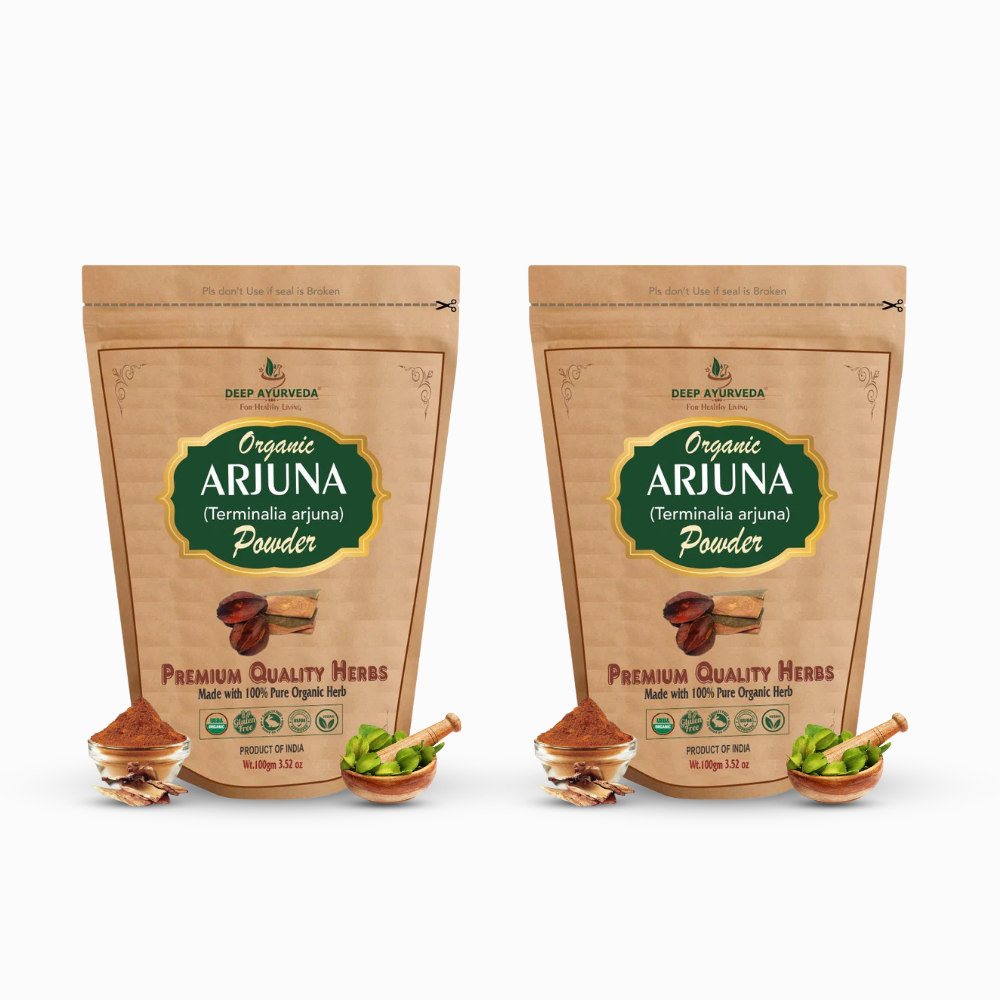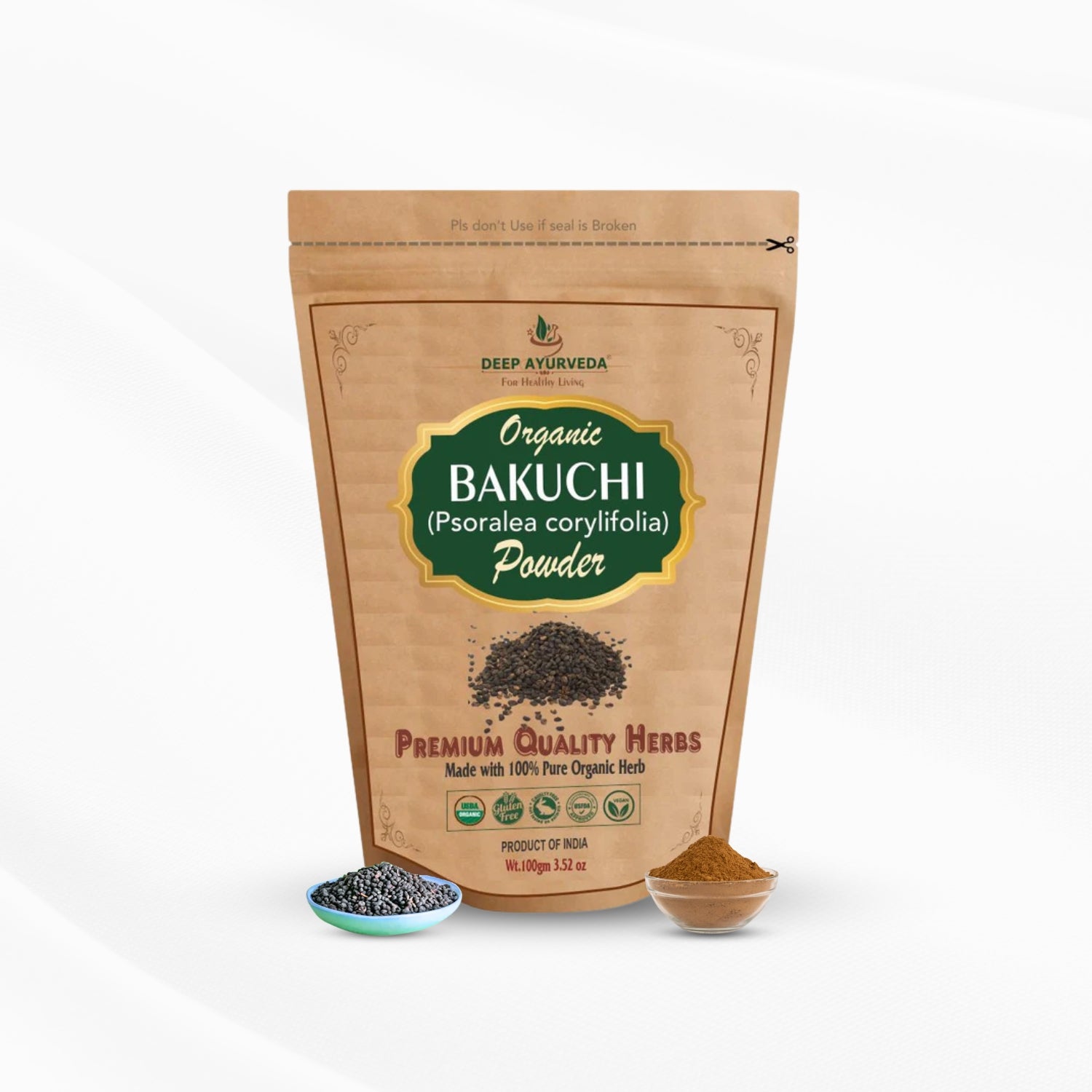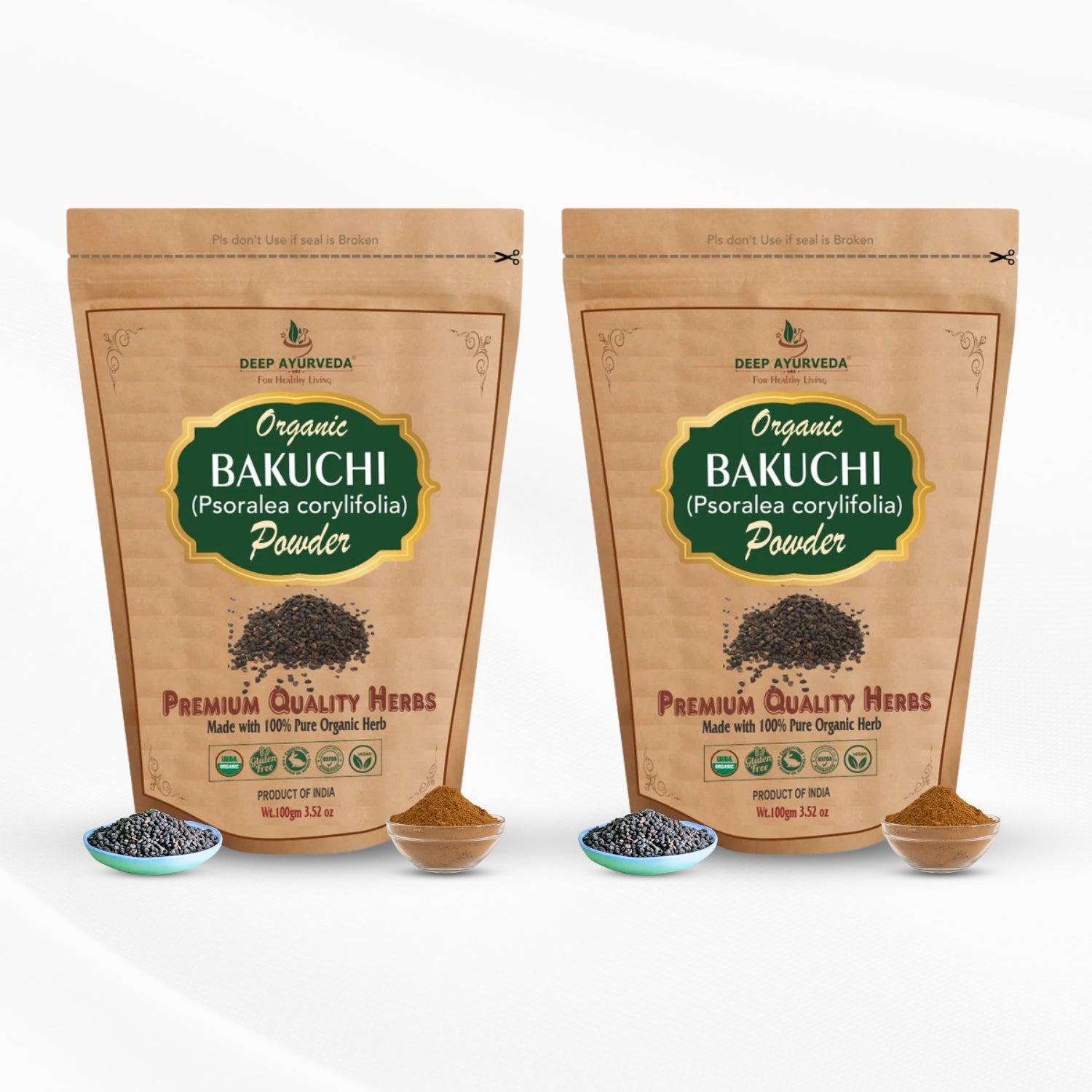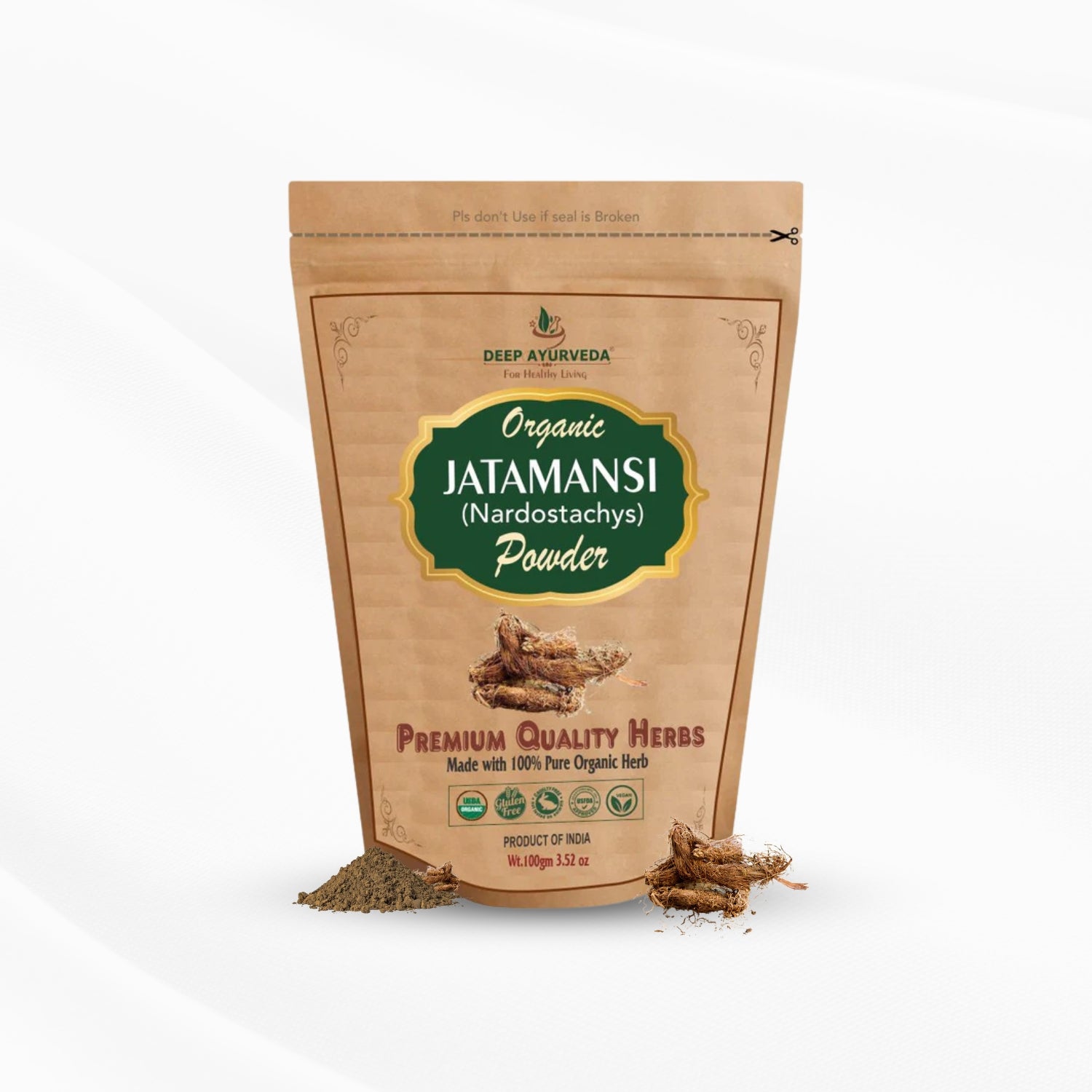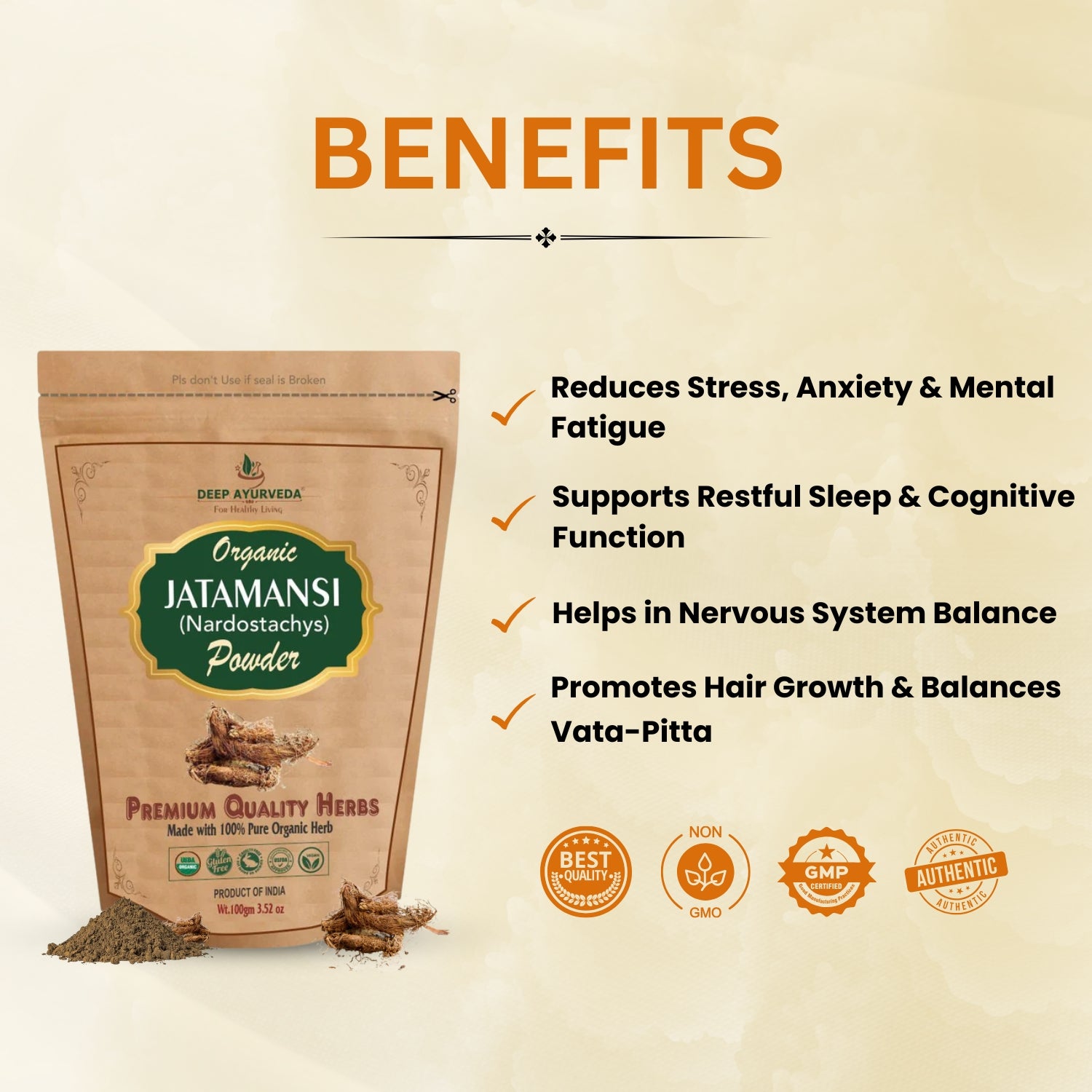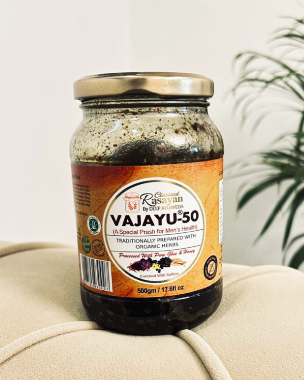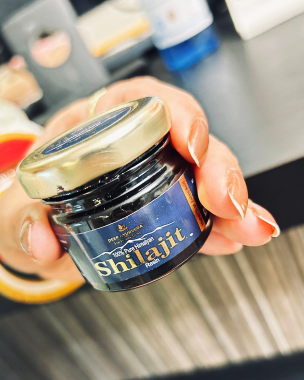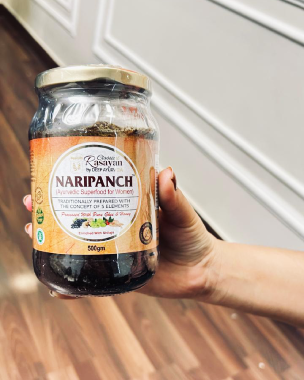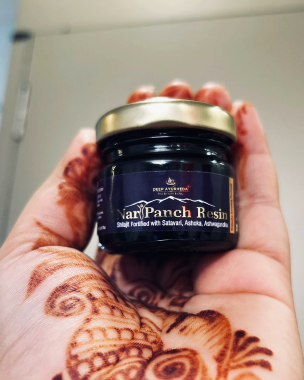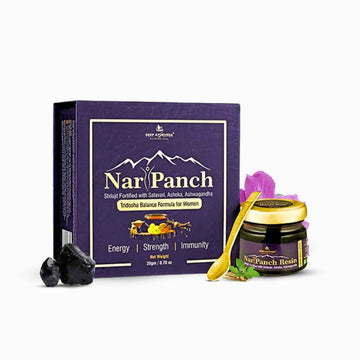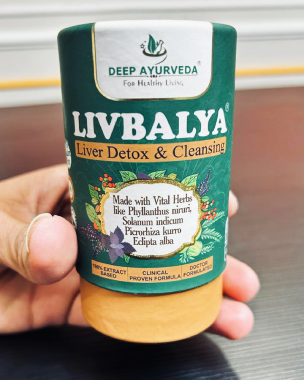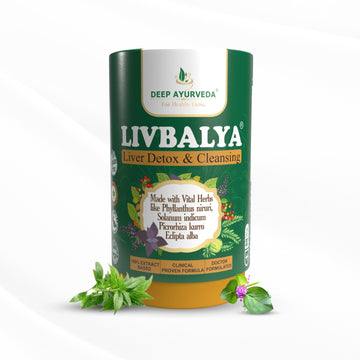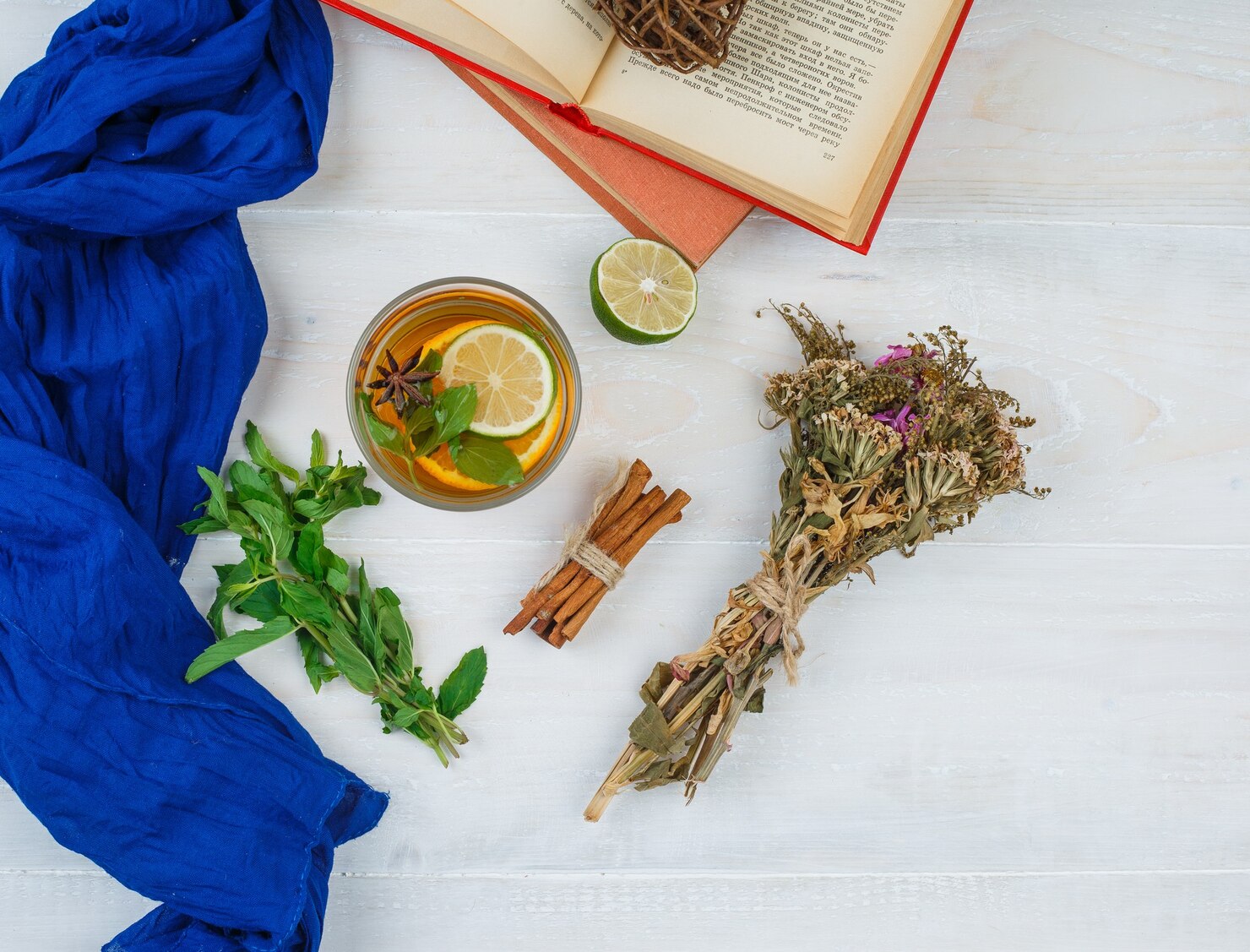Ayurvedic Prash for All Ages & Genders
Shilajit For Everyone Power & Wellness!
Vajayu Shilajit Gold Resin Plus With Gold & Kesar
Pure Himalayan Shilajit Resin – Traditional Ayurvedic Support for Energy & Vitality
NariPanch Shilajit Resin Ayurvedic Blend for Women’s Vitality & Wellness
Finest Quality Natural Product

Doctor Formulated
20+ Years of Expertise in Ayurveda

Clinically Trials
Formulated with Clinical Practice & Proven Results

Industry Trusted
Trusted Name in Ayurveda Industry & Manufcturing

100% Natural
No Chemicals & No Artificial Substances

Tridosha Balance
Made with Vata, Pitta & Kapha Principles
Vegan Capsules Powered by 100% Herbal Extracts Based
Organic Powders Pure, Potent & Natural


















Latest from Our Blog
Ayurveda Insights, Tips & Wellness Secrets for a Healthier Life
Moringa Powder Benefits for Skin: A Natural Superfood for Healthy Glow
Moringa, often called the “drumstick tree” or “miracle tree”, has been celebrated in Ayurveda for centuries for its healing and rejuvenating properties. Today, it has gained global recognition as a superfood not only for overall health but also for radiant, youthful skin. Ayurvedic texts describe Moringa as Shigru, a herb with powerful detoxifying, nourishing, and anti-inflammatory qualities. Modern skincare enthusiasts now consider Moringa powder as one of the most effective natural remedies for achieving a healthy glow. In this blog, we’ll explore the Moringa Powder Benefits for Skin and why it deserves a place in your beauty and wellness routine. What is Moringa Powder? Moringa powder is derived from the dried leaves of the Moringa oleifera tree. These leaves are sun-dried and finely ground to create a nutrient-rich powder. Nutritional profile of Moringa powder: Rich in Vitamin A, C, and E – essential for skin repair and glow. Packed with antioxidants – protect skin cells from damage. Contains essential amino acids – vital for cell regeneration. Provides minerals like zinc and calcium – important for skin structure and hydration. Thanks to this rich nutrient profile, Moringa powder benefits extend beyond general wellness to making the skin healthy, youthful, and naturally radiant. Top Benefits of Moringa Powder for Skin Rich in Antioxidants – Fights Free Radicals Pollution, stress, and UV rays trigger free radical damage that leads to premature aging. The antioxidants in Moringa powder, especially Vitamin C and flavonoids, help neutralize these free radicals, preventing wrinkles, fine lines, and dullness. Anti-Inflammatory Properties – Reduces Acne & Blemishes One of the most valued Moringa Powder Benefits for Skin is its ability to soothe acne and blemishes. Its anti-inflammatory compounds reduce redness, swelling, and skin irritation, making it an excellent natural remedy for acne-prone skin. Deep Cleansing & Detoxifying Effect Moringa powder helps eliminate impurities, excess oil, and toxins that clog pores. Regular use as a face pack or cleanser results in clearer, fresher-looking skin. Boosts Collagen Production Collagen is the protein responsible for firm, youthful skin. With its high Vitamin C content, Moringa supports collagen synthesis, reducing sagging and fine lines while enhancing skin elasticity. Hydrates & Nourishes the Skin The essential nutrients, amino acids, and Vitamin E in Moringa deeply moisturize and nourish the skin from within, keeping it soft, supple, and glowing. Evens Skin Tone & Brightens Complexion Regular use of Moringa powder helps fight pigmentation, dark spots, and dullness. Its skin-brightening properties promote an even skin tone and natural radiance. How to Use Moringa Powder for Skin Face Packs & DIY Masks For acne-prone skin: Mix Moringa powder with rose water. For glowing skin: Combine with honey and yogurt. For pigmentation: Blend with turmeric and raw milk.As an Ingredient in Skincare Products Moringa is now widely used in creams, scrubs, soaps, and serums, thanks to its antioxidant and nourishing profile. Internal Consumption Adding Moringa powder to smoothies, teas, or capsules works from within, providing essential nutrients that reflect as a healthy skin glow. Precautions & Things to Keep in Mind Always do a patch test before applying Moringa on your face. Consume in moderation (½–1 tsp daily), as excess may cause digestive discomfort. Pregnant or lactating women, or those on specific medication, should consult a doctor before regular use. Why Choose Ayurvedic/Organic Moringa Powder For best results, choose pure, organic, and chemical-free Moringa powder. Ayurveda emphasizes the importance of natural, unadulterated herbs for maintaining Ojas (vitality) and skin radiance. Organic Moringa ensures you receive the maximum skin-healing nutrients without harmful additives. Conclusion From reducing acne and blemishes to brightening complexion and fighting signs of aging, the Moringa Powder Benefits for Skin are truly remarkable. Backed by Ayurvedic wisdom and modern science, Moringa stands tall as a natural superfood for glowing, youthful skin. Start adding Moringa powder to your skincare and wellness routine today — let nature give you the healthy, radiant skin you deserve!
Read more6 Common Myths About Ayurveda and the Truth Behind Them
Ayurveda is the ancient Indian system of treatment that is truly a treasure for our country, yet often undervalued by people. It is not just a medical system but a complete Shastra that teaches us how to live a healthy and balanced life. Unfortunately, due to several myths and misconceptions surrounding Ayurveda, many people are misguided and fail to understand its true essence and scientific approach. People often lack proper knowledge about Ayurveda and have developed many myths in their minds regarding it. In this blog, we will explore some of the most common myths about Ayurveda and uncover the true facts behind them. Myth no 1- Ayurveda Works Slowly Fact-The most common myth about Ayurveda is that it works slowly. In reality, Ayurveda does not work slow; instead, it works on the root cause of the disease. When treatment is done under a qualified Ayurvedic doctor by identifying the body type (Prakriti) and correcting the doshic imbalance, Ayurveda can give instant results. Many Panchakarma therapies such as Agnikarma, Viddhakarma, Marma therapy, and Raktamokshan provide immediate relief in pain. Ras Aushadhis (herbo-mineral medicines) are known to act quickly, even in chronic conditions. Basti Chikitsa offers fast pain relief while also addressing the root cause of nervous system disorders. Even common problems like acidity respond instantly to Ayurvedic medicines—for example, ENO, one of the most popular remedies for acidity in India, is based on Ayurvedic formulation, making it a perfect example of how Ayurveda can act fast. Myth no 2- Ayurveda means only Herbal Medicine Fact- This is one of the biggest myths about Ayurveda—that it only involves herbal medicines or jadibooti, as people commonly say. In reality, Ayurveda is a vast medical science that also includes specialized Ras Aushadhi (herbo-mineral medicines). These medicines are prepared from purified minerals and metals, processed through classical methods, and converted into Bhasma (nano-particle form). Because of their fine particle size, they have high potency, quick absorption, and faster results. Ras Aushadhi are widely used in Ayurveda to treat many chronic and complex diseases, where only herbal medicines may not be sufficient. Myth no 3- Ayurvedic Medicine Means Only Bitter Churnas Fact- This is another very common myth people still believe—that Ayurveda means only taking churnas (powders). In reality, Ayurveda has a wide range of medicines available in different forms such as tablets, syrups, capsules, oils, avaleha (like chyawanprash), and much more. With the help of modern technology, Ayurveda has evolved further, and today we even have Ayurvedic creams, cosmetics, shampoos, and health supplements. It is also a misconception that all churnas are bitter. In fact, Ayurveda classifies herbs according to different rasas (tastes)—some are sweet, some sour, some pungent, and not all are bitter. Thus, Ayurveda is not limited to churnas alone but offers a complete system of medicine in multiple convenient and effective forms Myth no 4- Ayurveda is a Pseudo Science and not Scientific Fact- Ayurveda is one of the oldest and most systematic medical sciences in the world, with a history of more than 5,000 years. It is based on well-documented principles like Tridosha theory (Vata, Pitta, Kapha), Agni (digestive fire), Dhatus (body tissues), and Srotas (channels). Ancient Ayurvedic texts such as Charaka Samhita and Sushruta Samhita describe detailed concepts of anatomy, physiology, pathology, diagnosis, and treatment. Modern research has validated Ayurvedic herbs and formulations for their pharmacological and therapeutic effects. Moreover, Ayurvedic Rasayana (rejuvenation therapy) and Panchakarma detox therapies are increasingly being studied and practiced worldwide. Ayurveda is not unscientific—it is a time-tested, evidence-based holistic science, now being re-validated through modern clinical research. For example, the most common Ayurvedic herb Haridra (Haldi/Turmeric) is described in classics as Kushtaghna (useful in skin diseases), Kandughna (relieves itching), Raktashodhak (blood purifier), Vranaropana (wound healer), and Yakrituttejak (liver stimulant). Modern research has also validated this, as turmeric is found to contain Curcumin, a powerful compound with antioxidant, anti-inflammatory, and healing properties. Chyawanprash, which is used by millions today for boosting health and immunity, is a classical Ayurvedic formulation made from a combination of multiple herbs processed through a scientific and standardized procedure. Its effectiveness is well-recognized across generations. If such time-tested and well-documented formulations exist, then Ayurveda can never be called a pseudo science. Myth no 5: Ayurvedic Medicines Have No Side Effects and herbs can be taken without guidance of Ayurvedic Doctor Fact- Ayurveda works on the fundamental concept of Tridosha – Vata, Pitta, and Kapha, and every herb acts differently depending on an individual’s body type and doshic imbalance. That is why even simple herbal medicines should always be taken under the guidance of a qualified Ayurvedic doctor. Many people consume commonly known herbs like Triphala or Ashwagandha on their own, assuming they are suitable for everyone. However, in some cases, these may cause issues like constipation, acidity, or discomfort if not prescribed according to one’s prakruti and current health condition. This often leads to the misconception that Ayurveda works slowly or causes side effects, whereas the real issue lies in self-medication without proper consultation. For example Some people experience body heat or acidity after taking Ashwagandha because in Pittaj prakruti individuals, long-term or high doses can aggravate Pitta. Hence, even Ayurvedic medicines should always be taken under proper doctor’s guidance. Myth no 6- All Ayurvedic Medicine Are “Heating” In Nature Fact-Another common myth is that all Ayurvedic medicines are “heaty” in nature. The fact is that Ayurveda is a highly scientific system where every herb and formulation is prescribed according to the individual’s body type (Prakriti) and the imbalance of doshas. Some medicines are indeed ushna (hot in potency), but many are sheeta (cooling) or madhya (neutral). For example, herbs like Amla, Giloy, and Shatavari are cooling in nature and are widely used to balance excess heat in the body. Therefore, it is wrong to generalize that all Ayurvedic medicines cause heat—when prescribed properly by an Ayurvedic physician, medicines balance the body rather than create imbalance. An Ayurvedic doctor always prescribes medicines according to your Prakruti and balances them with suitable herbs, so you will never be given only heating medicines. Conclusion Ayurveda arise from lack of awareness and half-knowledge. Ayurveda is not just about bitter churnas or jadibootis—it is a scientific, holistic, and time-tested medical system that includes herbal medicines, Ras Aushadhi, formulations like Chyawanprash, modern dosage forms, Yoga, Panchakarma therapies, and even surgical practices described by Acharyas like Sushruta. Ancient wisdom combined with modern research continues to prove the effectiveness and scientific basis of Ayurveda. Instead of labeling it as slow or pseudo-science, it is time we recognize Ayurveda as a treasure of health and healing that India has gifted to the world.
Read morePCOS Diet Chart: Balancing Hormones Naturally (Ayurvedic Guide)
Polycystic Ovary Syndrome (PCOS) is one of the most common hormonal disorders affecting women today, leading to irregular periods, weight gain, acne, hair fall, and fertility challenges. While modern medicine often focuses on symptom management, Ayurveda views PCOS as a result of dosha imbalance and poor digestion (Agni). Diet, therefore, becomes the cornerstone of natural healing. Following a well-designed PCOS diet chart can not only regulate hormonal balance but also improve metabolism, support fertility, and promote overall wellness. 👉 Along with a balanced diet, certain Ayurvedic formulations are highly beneficial for women’s hormonal and reproductive health. One such supplement is Naripanch , considered the best Ayurvedic chyawanprash for women, as it nourishes the body, strengthens immunity, and supports natural hormonal balance. Understanding PCOS from an Ayurvedic Perspective According to Ayurveda, PCOS is primarily linked to Kapha and Vata imbalance. Excess Kapha leads to weight gain, sluggish metabolism, and cyst formation, while aggravated Vata causes irregular cycles and hormonal fluctuations. Poor digestion (Mandagni) further contributes to toxin (Ama) buildup, which disrupts reproductive health. Ayurveda emphasizes diet, lifestyle, and stress management as natural ways to restore harmony and balance hormones. Key Principles of an Ayurvedic PCOS Diet Prefer warm, freshly cooked, and sattvic meals. Avoid processed, refined, and fried foods. Include seasonal fruits and vegetables. Favor whole grains like millets, quinoa, and brown rice. Use hormone-balancing spices: turmeric, cinnamon, cumin, fenugreek. Stay hydrated with herbal teas (cumin-coriander-fennel water, tulsi tea). Practice mindful eating – eat at regular intervals and avoid overeating. Ayurvedic PCOS Diet Chart (Daily Meal Plan) Early Morning: Warm lemon water or fenugreek seed water Herbal tea (cinnamon/ginger/tulsi) Breakfast: Vegetable upma, poha with curry leaves, or multigrain porridge Herbal tea instead of coffee Mid-Morning Snack: Seasonal fruit (papaya, guava, apple, pomegranate) Coconut water or buttermilk Lunch: Brown rice / millet roti with dal or moong khichdi Steamed vegetables with turmeric & cumin Fresh salad with lemon dressing Evening Snack: Roasted chana or nuts and seeds mix Tulsi-ginger tea Dinner (light & early): Moong dal khichdi, vegetable soup, or roti with sabzi Avoid heavy fried foods Before Bed: Warm turmeric milk (if suitable) 7-Day PCOS Diet Plan (Ayurvedic Approach) To make it easier, here’s a 7-day PCOS diet plan designed to balance hormones naturally: Day 1: Moong dal khichdi + steamed veggies + herbal tea Day 2: Millet roti with spinach sabzi + cucumber salad + buttermilk Day 3: Brown rice with dal tadka + broccoli stir fry + tulsi tea Day 4: Oats porridge with flaxseeds + papaya + lemon water Day 5: Vegetable upma with curry leaves + roasted nuts + green tea Day 6: Quinoa pulao with seasonal veggies + dal + salad Day 7: Light moong soup with roti + steamed bottle gourd + ginger tea Foods to Include in PCOS Diet (Ayurvedic View) Whole grains: oats, quinoa, millets Fruits: papaya, pomegranate, guava, apple Vegetables: spinach, bottle gourd, bitter gourd, broccoli Healthy fats: ghee, flaxseeds, sesame oil, nuts Herbs: ashwagandha, shatavari, turmeric, cinnamon Foods to Avoid in PCOS (Ayurvedic View) Junk and fried food Excess dairy and refined sugar White rice, maida, bread, pasta Cold drinks, packaged juices, carbonated beverages Canned and processed foods Lifestyle Tips Along with Diet Practice yoga asanas like butterfly pose, surya namaskar, and bhujangasana. Do pranayama (deep breathing, anulom-vilom) daily. Reduce stress with meditation and mindfulness. Maintain a regular sleep cycle (7–8 hours). Consider Ayurvedic therapies like Panchakarma under expert guidance. Conclusion Managing PCOS naturally is possible with the right balance of diet, lifestyle, and Ayurvedic practices. Following a personalized Ayurvedic PCOS diet chart not only helps regulate hormones but also supports overall reproductive health and well-being. Small changes in daily food choices, when followed consistently, can bring long-term relief. 👉 For a customized diet plan and Ayurvedic treatment, consult our Ayurvedic Doctor at Deep Ayurveda.
Read more









